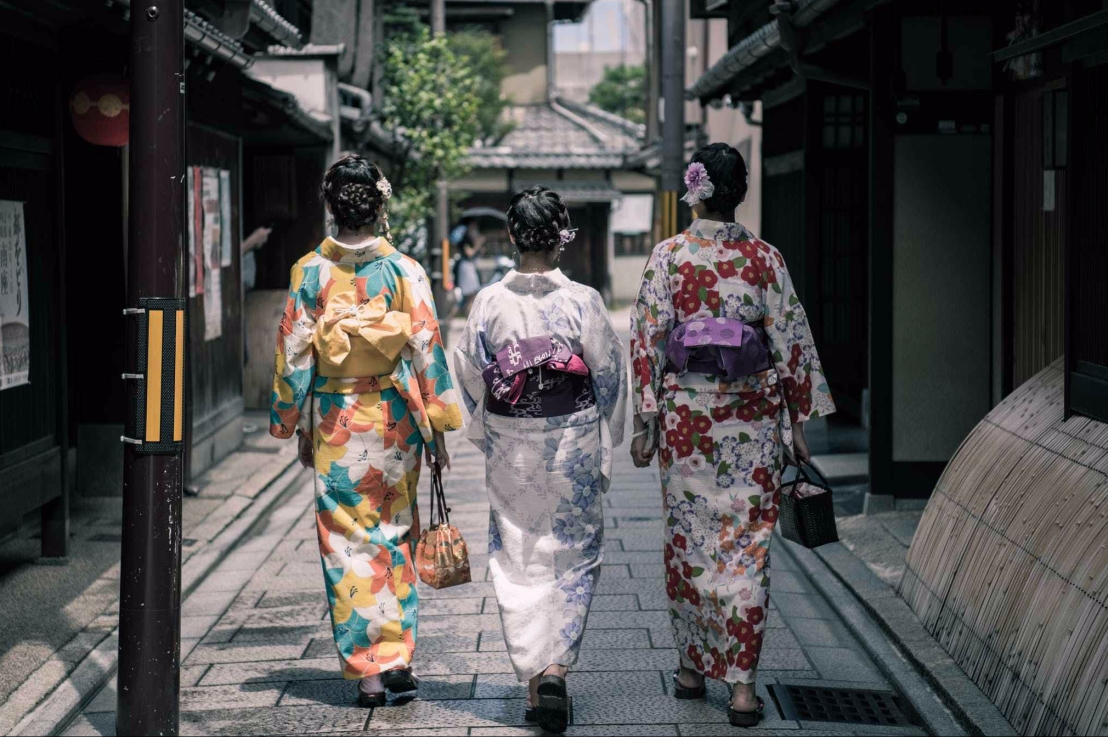
“What a strange thing!
to be alive
beneath cherry blossoms.”
Issa Kobayashi, a Japanese poet
There are numerous English words that are used in everyday Japanese conversations. And even though it’s usually possible to do without Japanese loanwords in daily English conversations, there are some words we simply can’t help using in certain situations. They are usually related to cuisine, culture, history, sports and entertainment. See our list of the most useful Japanese loanwords (sorry for not including sushi, sashimi, okonomiyaki and other yummy things in the list!):
| Word | Meaning |
| Bento /ˈbentəʊ/ / bento box
|
a thin box divided into compartments which contain small separate dishes comprising a Japanese meal, esp. lunch; a Japanese-style packed lunch: I left you a bento box. |
| Daikon /ˈdaɪkɒn/ / daikon radish | a kind of white radish: I sometimes add daikon to miso /ˈmiːsəʊ/ (a soft Japanese food made from soya beans) soup. |
| Sake /ˈsɑːki/ | an alcoholic drink made from rice: This is a sake brewery. |
| Tofu /ˈtəʊfuː/ | a soft white food made from soya beans: There’s also a tofu dumpling coming up. |
| Kabuki /kəˈbuːki/ | a form of Japanese drama: That book on kabuki might be expensive. |
| Kanji /ˈkændʒɪ , ˈkɑːn-/ | a Japanese writing system using characters mainly derived from Chinese ideograms; a character of this system: Tom has memorized so many kanji that he can read books for primary school children. |
| Origami /ˌɒrɪˈɡɑːmi/
|
the Japanese art of folding pieces of paper to make models: This is not proper origami paper. |
| Ikebana /ˌiːkeɪˈbɑːnə/ | the Japanese art of arranging flowers in an attractive way according to strict rules: You can’t learn ikebana in 10 days. |
| Bonsai /ˈbɒnsaɪ/
|
a tree grown in a small container; the activity of growing bonsai trees: You know, I’ve been thinking about the bonsai shop idea. |
| Haiku /ˈhaɪkuː/ | a short poem written in a traditional Japanese style: I wrote little haiku poems. I e-mailed them to everyone. |
| Kimono /kɪˈməʊnəʊ/
|
a type of traditional Japanese clothing, like a long coat with wide sleeves; a dressing gown in this style: She certainly looks beautiful in a Japanese kimono. |
| Anime /ˈænɪmeɪ/
|
a style of Japanese animated film or TV program: She loves anime and manga /ˈmæŋɡə/ (Japanese comics or cartoons with stories that are aimed at adults as well as children) |
| Kawaii /kəˈwai/ | attractive and appealing; in English the word is used when talking about Japanese pop culture: It’s such a kawaii character! |
| Katana /kəˈtɑːnə / | a long curved single-edged sword traditionally used by Japanese samurai ˈsæmʊraɪ/: When a katana is gripped properly, the little finger is the strongest. |
| Rickshaw /ˈrɪkˌʃɔː/
|
a small vehicle with two wheels used for carrying passengers and pulled by someone riding a bicycle or walking: My rickshaw got caught in this massive traffic jam. |
| Sudoku /suˈdəʊkuː/ | a kind of number game: I’m a sudoku fan. |
| Karaoke /ˌkæriˈəʊki/ | a type of entertainment in which people sing popular songs while recorded music is played: Let’s sing karaoke!
Note karaoke is not a place, so don’t say Let’s go to a karaoke. Instead, you can say, let’s go to a karaoke bar/place or just let’s go sing karaoke. |
| Emoji /ɪˈməʊdʒi/
|
a small digital image or symbol used in electronic communication to convey an idea or feeling: She often uses emojis. |
| Typhoon /taɪˈfuːn/ | a kind of tropical storm: The typhoon has made landfall. |
| Tsunami /tsuːˈnɑːmi/ | a very large wave caused when something such as an earthquake moves a large quantity of water in the sea: See the tsunami evacuation map; an extremely large quantity of something bad: This is a tsunami of lies; a disastrous situation that cannot be controlled: A financial tsunami is coming. |
As we have mentioned, numerous English words are used in Japanese nowadays. But some Japanese people learning English may be surprised to find out that some Japanese English expressions are actually not that natural in English. Here are a few notable examples:
ペーパードライバー (peepaa doraibaa) (from the English “paper + driver”) – a person who has a driving license but little or no experience driving
マンツーマン (mantsuman) (from the English “man-to-man”) – in Japanese the word is often used to talk about one-on-oneclasses. In English though, we don’t say “man-to-man classes”. We say “one-on-one classes/lessons” or “private classes/lessons”. In English, “man-to-man” means “involving two men who are telling each other what they really think” (Let’s talk man-to-man). It can also be an adjective: Let’s have a man-to-man conversation.
ワンピース (wanpiisu) (from the English “one-piece”) – a dress. In English, however, a one-piece is a type of woman’s swimming costume that consists of one piece of material and which covers her chest (see the picture below). One-piece is also an adjective: this is a one-piece swimsuit.
ユーティリティー (yuutiritii) (from the English “utility”) – a room with a sink, a washing machine, etc. in a house/apartment. In English, utility an important service such as water, electricity, or gas that is provided for everyone, and that everyone pays for.
チャームポイント (chaamupointo) (from the English “charm point” – the most attractive feature (of a person)). Remember it is pseudo-English, so, for example, “her eyes are her charm point” doesn’t sound natural. Say “her eyes are the most beautiful thing about her / the most beautiful part of her body” instead.

By
Last updated:
December 20, 2022
I wrote a haiku about shamisen music while cuddled up in my futon eating teriyaki chicken.
Japanese words are everywhere in the English language, and being able to identify them enlightens you to a base knowledge of Japanese that you didn’t even know you had.
For instance, did you know the word tsunami, sometimes called a “tidal wave,” is of Japanese origin?
Here, we’ll introduce you to 32 words we use in English that you may not know come from Japanese. The original Japanese word, usually written in kanji, is included for each loanword (plus hiragana in parentheses, for easy reading).
It’s interesting to see how logical the original character’s form usually is, which makes the words altogether easier to remember.
Some Japanese pronunciation tips are also included, as the pronunciation of the original Japanese words can sometimes differ from that of the adapted English versions.
You already know the meanings and how to say them—add the full Japanese knowledge, and you’ll be 32 words closer to mastering this difficult but fascinating language!
Download:
This blog post is available as a convenient and portable PDF that you
can take anywhere.
Click here to get a copy. (Download)
32 Cool Japanese Loanwords We All Use in English
Japan tends to be on the dangerous side when it comes to the weather, so it isn’t surprising that these first two words came from Japanese and were incorporated into English.
1. Typhoon
Japanese: 台風 (たいふう)
Kanji Meaning: 台 (たい) means “table” or “pedestal,” and 風 (ふう) means “wind.”
Typhoons are common during late summer and early autumn in Japan, often causing minor damages in the southern Okinawa islands and disrupting transportation in large cities.
2. Tsunami
Japanese: 津波 (つなみ)
Kanji Meaning: 津 (つ) is “harbor” or “port,” and 波 (なみ) means “wave.”
Pronunciation Tip: In Japanese, the t is pronounced, unlike in English.
Unfortunately, Japan has had more than its fair share of tsunamis (or “tidal waves”). We commonly use the Japanese word to describe these devastating natural disasters in English.
Now we’ll steer away from these dangerous events and into something more fun. A lot of popular recreational activities actually originated in Japan. Get a faceful of these next words!
3. Karaoke
Japanese: カラオケ (からおけ)
Kanji Meaning: As seen above, “karaoke” is now usually written in katakana in Japanese, such as on signs and buildings. However, the word originally came from the kanji 空 (から), meaning “empty,” and the katakana オケ, coming from the English “orchestra.” So, if you think about it, “karaoke” is an English word adopted from Japanese, but which originally had influences from English—or from Greek, if you want to get really linguistically fancy. Phew!
Pronunciation Tip: Forget everything you know about the English pronunciation of this word, as I’m afraid we’ve butchered it. Follow the katakana to the letter (literally).
Karaoke is an entirely different experience in Japan, and can be enjoyed alone, as a small group of friends or, similar to Western style, with loud and drunken strangers.
4. Sake
Japanese: 酒 (さけ)
Kanji Meaning: 酒 (さけ) literally means “alcohol.” Add お at the beginning of the kanji (お酒) to describe any alcoholic drink.
Aah, sake. The businessman’s best friend and an essential addition to your “new experiences” to try in Japan. This rich, strong rice wine is often described in English with its original Japanese word.
5. Manga
Japanese: 漫画 (まんが)
Kanji Meaning: 漫 (まん) means “random” or “uncontrolled,” and 画 (が) is “picture.”
Manga, or Japanese comics, are extremely popular in Japan and beyond. Shelves of these visual stories can be seen not only in libraries and bookshops, but also in restaurants and convenience stores.
6. Anime
Japanese: アニメ
Okay, this one might be cheating a little, as the word “anime” technically comes from the English word “animation”—that’s why it appears in katakana, the writing system of choice for foreign words in Japanese—but it wouldn’t have felt right not to include it. “Anime” is the Japanese word for “cartoon,” and more specifically, Japanese-style animation.
7. Otaku
Japanese: お宅 (おたく)
Kanji Meaning: 宅 (たく) literally means “house,” and perhaps refers to the tendency “otaku” have to spend a lot of time indoors.
In both English and Japanese, “otaku” is often used to describe someone who spends a lot of their free time playing video games, reading manga and watching anime, and who takes little or no interest in more social activities. It can also sometimes be used by fans of anime and manga to describe others with similar interests.
8. Emoji
Japanese: 絵文字 (えもじ)
Kanji Meaning: 絵 (え) means “picture” and 文字 (もじ) is “character” or “letter.”
You know what these are! Emoji are those little pictures you can use on your smartphone or computer to communicate an emotion or message. This actually originally came from Japanese, literally meaning “pictograph.”
9. Origami
Japanese: 折り紙 (おりがみ)
Kanji Meaning: 折 (おり) means “to fold,” and 紙 (がみ) is “paper.”
This old Japanese art literally means “paper folding” and is hugely important in July’s Star Festival in Japan.
10. Shiatsu
Japanese: 指圧 (しあつ)
Kanji Meaning: 指 (し) means “finger” and 圧 (あつ) is “pressure.”
You may have seen the word “shiatsu” outside massage parlors—it’s a Japanese style of body massage that supposedly supports the body’s natural defenses, helping people to heal and balance themselves in mind, body and spirit.
Aah, that was relaxing—but now we’re moving on to the delights of Japanese food! Whet your appetite with these next loanwords.
11. Sushi
Japanese: 寿司 (すし)
Kanji Meaning: 寿 (す) means “congratulations” or “longevity,” and 司 (し) is “official.” If you think about it, it’s quite sweet that the kanji for sushi is “official congratulations!”
There was no reason to rename this famous Japanese dish. Sushi is made from rice often wrapped with seaweed, and a filling such as fish or a type of raw or pickled vegetable.
12. Tofu
Japanese: 豆腐 (とうふ)
Kanji Meaning: 豆 (とう) is “beans” and 腐 (ふ) means “ferment” or “rot.” It may sound a bit gross, but the Japanese have cleverly mastered several dishes involving fermenting various foods.
Pronunciation Tip: In Japanese, the “tou” sound is longer than the “fu,” which is very short.
Tofu is made from soybeans and is a delicious addition to many sweet and savory Japanese dishes—as well as dishes in other countries. In Japan, there are still many professional tofu makers.
13. Ramen
Japanese: らーめん, ラーメン
Ramen is actually a Chinese dish, but has been adapted in Japan and is a long-standing Japanese word. Ramen is also used in English to mean many different kinds of noodle-based dishes.
14. Wasabi
Japanese: 山葵 (わさび)
Kanji meaning: 山 means “mountain” and 葵 is “hollyhock.” But 山葵 is ateji, which is kanji used semantically without regard to the readings.
Whether you can get it in your home country or not, most people have heard of wasabi—spicy Japanese horseradish often added to sushi and other fish-based dishes.
15. Teriyaki
Japanese: 照り焼き (てりやき)
Kanji Meaning: 照り (てり) means “shine” and 焼き (やき) means “grilled.” Perhaps this kanji was given to it because the sauce glaze makes the chicken look like it’s “shining.”
Teriyaki is a delicious grilled style of chicken mixed in a special sauce, giving it its unique flavor. Teriyaki chicken is often served outside Japanese restaurants, meaning that some people may be surprised the word is of Japanese origin. The surprise might hit especially hard if you’ve been using teriyaki sauce in your kitchen all these years, without knowing its true origin!
After this food vocabulary, we should get a bit of exercise in. Thanks to movies like “The Karate Kid,” Japanese martial arts have become famous worldwide. How many of these words did you know originally came from Japanese? Take a look.
16. Karate
Japanese: 空手 (からて)
Kanji Meaning: 空 (から) means “empty” and 手 (て) is “hand.” Karate, therefore, is literally battling with no weapons except your bare hands.
Pronunciation Tip: All of the syllables contain the same amount of stress, unlike in English where we say “kah-RAH-tee.”
Karate is an offensive martial art with roots in Chinese fighting, involving complicated attacks using hands, feet and elbows.
17. Judo
Japanese: 柔道 (じゅうどう)
Kanji Meaning: 柔 (じゅう) means “gentle” or”soft,” and 道 (どう) is “way” or “road.”
Pronunciation Tip: Long “juu” and long “dou” sounds are used in Japanese.
The difference between karate and judo is that judo is more defensive—it involves taking advantage of your opponent’s strength and weight.
18. Sumo
Japanese: 相撲 (すもう)
Kanji Meaning: 相 (す) means “together” or “mutual,” and 撲 (もう) means “hit” or “beat.”
Pronunciation Tip: In Japanese, you’ll want to say a very short “su” and long “mou.” It sounds more like “smou.“
Sumo is a very unique Japanese martial art which involves enormous wrestlers trying to force each other out of the ring. You can watch traditional Sumo matches in Japan; nowadays, most Sumo champions tend to be from Mongolia.
19. Senpai
Japanese: 先輩 (せんぱい)
Kanji Meaning: 先 (せん) means “before” or “ahead,” and 輩 (ぱい) means “comrade” or “companions.” It’s the perfect kanji for this word—literally “companions ahead of me.”
The word “senpai” is becoming increasingly popular in English, and it’s on its way to being added to the Oxford Dictionary (though some people aren’t too happy about it). “Senpai” in Japanese means someone higher-ranking than you, usually in school, such as a fellow student in a higher grade. In English, it has a similar meaning, often jokingly referring to people the speaker sees as superior, and therefore not noticing their meek and humble selves.
20. Dojo
Japanese: 道場 (どうじょう)
Kanji Meaning: 道 (どう) means “way” or “road,” and 場 (じょう) is “location” or “place.” It’s the place where you are on the road to improving your skills.
Pronunciation Tip: Long “dou” and long “jou.”
The word “dojo” might be familiar to fans of martial arts; it refers to the place where karate, judo and other similar sports are usually practiced.
21. Sensei
Japanese: 先生 (せんせい)
Kanji Meaning: 先 (せん) remember this kanji? It also came up in “senpai.” It means “before” or “ahead.” 生 (せい) means “born”—your teacher is (usually) born before you.
Although in English, “sensei” usually just refers to a martial arts instructor, “sensei” means any type of teacher in Japanese, whether it be for a public school, a cram school or for sports. 先生 is also an honorific suffix that’s commonly used for doctors, politicians, attorneys, etc.
Now we’ll move on to some words that were specifically adopted by English to describe some elements of Japanese culture.
22. Samurai
Japanese: 侍 (さむらい)
Kanji Meaning: If anything can tell you how long Samurai have been around, it’s the fact that this word has an entire kanji for itself. 侍 (さむらい) means “to serve” as well as “warrior.”
The Samurai are ancient Japanese warriors with a unique and quite beautiful culture of their own. Real Samurai are extinct now, but were so well-known that the word is recognized in English.
23. Ninja
Japanese: 忍者 (にんじゃ)
Kanji Meaning: 忍 (にん) means “spy” or “sneak,” and 者 (じゃ) means “person.”
Ninjas are Japanese assassins, experts in stealth and subtle kills. In English, the term “ninja” can also be slang to mean someone who’s extremely quick and unseen; for example:
A: “How did you get here so fast?”
B: “I’m a ninja.”
24. Kimono
Japanese: 着物 (きもの)
Kanji Meaning: 着 (き) means “to wear” and 物 (もの) means “thing” or “goods.” It makes sense, then, that kimono literally means “something to wear.”
A kimono is a Japanese dress traditionally worn by female entertainers (geisha) and nowadays worn at festivals and graduation ceremonies.
25. Yukata
Japanese: 浴衣 (ゆかた)
Kanji Meaning: 浴衣 is another ateji, but 浴 means “bathe” or “bask,” and 衣 means “clothing.” Perhaps this is because yukatas are worn to summer festivals, and therefore one can wear them and bask in the beautiful clothes they’re wearing.
A yukata is very similar to a kimono, but it tends to involve less layers, and therefore is usually worn in summer.
26. Zen
Japanese: 禅 (ぜん)
Kanji Meaning: 禅 (ぜん) literally means “silent meditation.”
Zen is a branch of Buddhism that emphasizes self-control and meditation.
27. Shamisen
Japanese: 三味線 (しゃみせん)
Kanji Meaning: 三 (しゃ) is “three,” 味 (み) is “flavor” and 線 (せん) means “line” or, in this case, “string.”
A shamisen is a stringed musical instrument often featured in traditional Japanese theater.
28. Haiku
Japanese: 俳句 (はいく)
Kanji Meaning: 俳 (はい) means “poem” or “actor,” and 句 (く) means “clause” or “passage.”
You may have studied haiku in school; they’re traditional Japanese poems. The many stanza and syllable rules make them unique in the world of poetry.
29. Futon
Japanese: 布団 (ふとん)
Kanji Meaning: 布 (ふ) means “linen” or “cloth” and 団 (とん) is “group.”
Pronunciation Tip: Say a very short “u”; it sounds more like “fton” in Japanese.
Have you ever slept in a futon? They can either be very comfortable or very uncomfortable, depending on what kind it is and how many layers are involved. Futons have been a traditional bed in Japan for centuries, therefore it’s unsurprising that English speakers borrowed this word to describe them. However, we also use this word in English to describe couches that also have fold-out beds.
30. Koi
Japanese: 鯉 (こい)
Kanji Meaning: 鯉 (こい) just means “carp”—no surprises there!
In English, we tend to say “koi carp,” but in Japanese, it’s just “koi.” Koi-shaped streamers are used in Japanese festivals such as Children’s Day in May and are largely featured in Japanese decorations year-round.
31. Yakuza
Japanese: ヤクザ (やくざ)
Kanji Meaning: The name yakuza comes from “八九三” (八/8=ya, 九/9=ku, 三/3=za). It originates from a card game. In this game, a player’s score is decided by adding the scores on several cards and using only the smallest digit. Because 8+9+3=20=0 points, “893” means “no points.” So this meaning later changed to “useless people” or “gambling people.”
Most people have heard of the Japanese Mafia thanks to movies such as “Kill Bill,” “Battles Without Honor and Humanity” and “Fast and Furious: Tokyo Drift.” Today, the yakuza are still very active and powerful in areas such as Tokyo.
32. Tatami
Japanese: 畳 (たたみ)
Kanji Meaning: 畳 (たたみ) means “tatami mat” but can also mean to “shut” or “put away.”
Tatami mats are a comfortable addition to many Japanese homes and usually recognizable to foreign eyes. In English, we tend to say the phrase “tatami mat,” but in Japanese it’s just “tatami.”
With these English-Japanese words you already know, you’ve now instantly gotten a plethora of Japanese vocabulary stored away in your brain—no studying required.
Japanese is a rewarding language to learn, and there are hundreds of ways to easily study it. This just happens to be one of the easiest ways out there.
Keep exploring loanwords, as well as other connections between Japanese and English, as you advance with your new language. You won’t regret it.
Good luck!
Download:
This blog post is available as a convenient and portable PDF that you
can take anywhere.
Click here to get a copy. (Download)
From Wikipedia, the free encyclopedia
Words of Japanese origin have entered many languages. Some words are simple transliterations of Japanese language words for concepts inherent to Japanese culture, but some are actually words of Chinese origin that were first exposed to English via Japan. The words on this page are an incomplete list of words which are listed in major English dictionaries and whose etymologies include Japanese. The reverse of this list can be found at List of gairaigo and wasei-eigo terms.
Arts[edit]
- anime
- アニメ
listen (help·info), hand-drawn and computer animation originating from or associated with Japan.
- bokeh
- (from ぼけ boke), subjective aesthetic quality of out-of-focus areas of an image projected by a camera lens.
- bonsai
- 盆栽
listen (help·info), «tray gardening»; the art of tending miniature trees. Originated from Chinese 盆栽 penzai
- bunraku
- [1] 文楽, a form of traditional Japanese puppet theatre, performed by puppeteers, chanters, and shamisen players.
- haiku
- 俳句
listen (help·info), a very short poem consisting of three lines of 5, 7, and 5 morae (not syllables as commonly thought) each; see also tanka below.
- ikebana
- 生花, flower arrangement.
- imari
- [2] 伊万里, Japanese porcelain wares (made in the town of Arita and exported from the port of Imari, particularly around the 17th century).
- kabuki
- [3] 歌舞伎, a traditional form of Japanese theatre; also any form of elaborate theatre, especially metaphorically.[4]
- kaiju
- 怪獣, Japanese genre of horror and science fiction films featuring giant monsters.
- kakemono
- [5] 掛け物, a vertical Japanese scroll, of ink-and-brush painting or calligraphy, that hangs in a recess on a wall inside a room.
- kakiemon
- [6] 柿右衛門, Japanese porcelain wares featuring enamel decoration (made in Arita, using the style developed in the 17th century by 酒井田 柿右衛門 Sakaida Kakiemon).
- karaoke
- カラオケ
listen (help·info), (English IPA : [kæriːoʊkiː]) «empty orchestra»; entertainment where an amateur singer accompanies recorded music.
- kirigami
- 切り紙, similar to origami, but involves cutting in addition to folding.
- koto
- [7] 琴, a traditional stringed musical instrument from Japan, resembling a zither with 13 strings.
- makimono
- [8] 巻物, a horizontal Japanese hand scroll, of ink-and-brush painting or calligraphy
- manga
- まんが or 漫画
listen (help·info), (English IPA : [mæŋgɜː]) Japanese comics; refers to comics in general in Japanese
- netsuke
- [9] 根付, a toggle used to tie the sash of a kimono also to attach small items such as inro and kinchaku: sometimes beautifully carved.
- noh
- [10] 能 nō, a major form of classical Japanese music drama
- origami
- 折り紙, artistic paper folding. (British English IPA : [ɒrɪgɑːmiː])
- otaku
- オタク or おたく or ヲタク, a geeky enthusiast, especially of anime and manga.
- senryu
- 川柳, a form of short poetry similar to haiku.
- shamisen
- [11] 三味線, a three-stringed musical instrument, played with a plectrum.
- sumi-e
- 墨絵, a general term for painting with a brush and black ink.
- tanka
- 短歌, «short poetry»; an older form of Japanese poetry than haiku, of the form 5-7-5-7-7 morae (not syllables; see also haiku above).
- tankōbon
- 単行本, «independent/standalone book»; term for a book that is complete in itself and is not part of a series or corpus. In modern Japan, though, it is most often used in reference to individual volumes of a single manga, as opposed to magazines.
- ukiyo-e
- 浮世絵, a type of woodblock print art or painting. (English IPA : [uːkiːoʊ.iː])
- waka
- 和歌, «Japanese poetry»; a word used primarily to describe tanka (see above) written between the 9th and 19th centuries.
- wabi-sabi
- 侘び寂び, a world view or aesthetic centered on the acceptance of transience and imperfection.
Business[edit]
- kaizen
- [12] 改善, literally «change for the better.» In practice, a Japanese business philosophy of continuous improvement of working practices, personal efficiency, etc. Initially made famous by the 1986 book of same name.
- kanban
- [13] 看板, literally a «signal» or «sign» signals a cycle of replenishment for production and materials and maintains an orderly and efficient flow of materials throughout the entire manufacturing process.
- karoshi
- 過労死, «death by overwork, stress death»
- keiretsu
- 系列, a set of companies with interlocking business relationships and shareholdings.
- Poka-yoke
- «mistake-proofing» or «inadvertent error prevention».
- tycoon
- 大君 («taikun»), «great prince» or «high commander», later applied to wealthy business leaders.
- zaibatsu
- 財閥, a «money clique» or conglomerate
Clothing[edit]
- geta
- [14] 下駄, a pair of Japanese raised wooden clogs worn with traditional Japanese garments, such as the kimono
- inro
- [15] 印籠 inrō, a case for holding small objects, often worn hanging from the obi; (traditional Japanese clothes didn’t have pockets)
- kimono
- 着物, a traditional full-length robe-like garment still worn by women, men and children. (English IPA : [kɪmoʊnoʊ])
- obi
- [16] 帯, a wide belt that is tied in the back to secure a kimono
- yukata
- 浴衣, a casual or simplified summer style of kimono
- zori
- [17] 草履 zōri, sandals made from rice straw or lacquered wood, worn with a kimono for formal occasions
Culinary[edit]
- adzuki,[18] azuki bean
- [19] あずき or 小豆
listen (help·info), type of bean grown in eastern Asia and the Himalayas, used in Chinese, Korean, and Japanese cuisines, usually served sweet
- arame
- 荒布, a type of edible seaweed
- bento
- 弁当 bentō, a single-portion takeout meal, box lunch
- daikon
- 大根, a kind of white radish
- dashi
- だし or 出汁, a simple soup stock considered fundamental to Japanese cooking
- edamame
- 枝豆, soybeans boiled whole in the green pod and served with salt
- enokitake, enoki mushroom
- えのきたけ or 榎茸, long, thin white mushrooms, used in Japanese, Korean and Chinese cuisines
- fugu
- 河豚 or フグ, the meat of the toxic pufferfish, must be prepared by specially trained chefs by law. Also means pufferfish itself.
- ginkgo
- 銀杏 or ぎんなん ginnan, a gymnospermous tree (Ginkgo biloba) of eastern China that is widely grown as an ornamental or shade tree and has fan-shaped leaves and yellow fruit (the word is derived from 17th Century Japanese 銀杏 ginkyō)
- gyoza
- ギョーザ or 餃子 gyōza, Japanese name for Chinese dumplings, jiaozi (jiǎozi); may also be called pot stickers in English if they are fried
- hibachi
- 火鉢, a small, portable charcoal grill; used in North America to refer to a teppan or a small shichirin-like aluminium or cast iron grill
- hijiki
- ひじき or 鹿尾菜, a type of edible seaweed commonly found on rocky coastlines
- katsu
- カツ, Japanese term for cutlets in general; in English, typically refers to the dish chicken katsu, a type of breaded chicken cutlet served with rice and sauce.[20] (English IPA : [kæt.suː])
- katsuo
- 鰹, a skipjack tuna
- katsuobushi
- かつおぶし or 鰹節, dried and smoked skipjack tuna (katsuo), which is shaved and then used in dashi
- koji
- 麴 or 麹 kōji, a fungus that is the active agent in the fermentation processes, of producing miso and soy sauce from soybeans, and of producing sake and shōchū from rice.
- kombu
- 昆布, dried kelp, which can be eaten or used as dashi
- matsutake
- 松茸, a type of edible mushroom, with a magnificently spicy aroma similar to cinnamon, considered to be a great delicacy and the most coveted mushroom in Japan
- mirin
- 味醂, an essential condiment of the Japanese cuisine, a kind of rice wine similar to sake with a slightly sweet taste
- miso
- 味噌, a thick paste made by fermenting soybeans with salt
- mizuna
- 水菜, an edible plant, with flavor akin to the mustard plant
- mochi
- 餅, sticky rice cake
- napa cabbage
- 菜っ葉, Chinese cabbage, (in Japan, it is a generic term for leaf vegetables.)
- nashi (pear)
- 梨, a species of pear native to eastern Asia, which are juicy, round and shaped like apples. Often simply referred to as «asian pear(s)».
- natto
- 納豆, traditional Japanese food made from fermented soybeans
- nori
- 海苔, food products created from the seaweed laver by a shredding and rack-drying process that resembles papermaking.
- panko
- パン粉, Japanese white bread flakes. Panko is made from bread without crusts, thus it has a crisper, airier texture than most types of breading found in Western cuisine.
- ramen
- ラーメン rāmen, the Japanese version of Chinese noodle soup, not limited to the instant variety. (British English IPA : [rɑːmen])
- sake
- 酒
listen (help·info),nihon-shu(日本酒), an alcoholic beverage, brewed from rice. In Japanese, the word commonly refers to alcoholic drinks in general
- sashimi
- 刺身, a Japanese delicacy primarily consisting of the freshest raw seafoods thinly sliced and served with only a dipping sauce and wasabi.
- satsuma
- (from 薩摩 Satsuma, an ancient province of Japan), a type of mandarin orange (mikan) native to Japan
- shabu shabu
- しゃぶしゃぶ, a meal where each person cooks their own food in their own cooking pot from an assortment of raw ingredients
- shiitake mushroom
- しいたけ or 椎茸
listen (help·info), an edible mushroom typically cultivated on the shii tree
- shoyu
- 醬油 or 醤油shōyu, Japanese soy sauce
- soba
- 蕎麦 or ソバ, thin brown buckwheat noodles
- soy
- from shoyu 醤油
- sukiyaki
- すき焼き or スキヤキ, a dish in the nabemono-style (one-pot), consisting of thinly sliced beef, tofu, konnyaku noodles, negi, Chinese cabbage (bok choy), and enoki mushrooms among others
- surimi
- すり身 or 擂り身, processed meat made from cheaper white-fleshed fish, to imitate the look of a more expensive meat such as crab legs
- sushi
- 鮨 or 鮓 or 寿司, a dish consisting of vinegared rice combined with other ingredients such as raw fish, raw or cooked shellfish, or vegetables
- takoyaki
- たこ焼, たこ焼き, or 章魚焼き, literally fried or baked octopus
- tamari
- 溜まり or たまり, liquid obtained by pressing soybeans
- tempura
- てんぷら or 天麩羅, classic Japanese deep fried batter-dipped seafood and vegetables. The word may be from Portuguese tempêro/seasoning.[21]
- teppanyaki
- 鉄板焼き, a type of Japanese cuisine that uses a hot iron griddle (teppan) to cook food
- teriyaki
- 照り焼き or テリヤキ, a cooking technique where fish or meat is being broiled/grilled in a sweet soy sauce marinade; in Japanese, it is used exclusively refer to poultry cooked in this manner.
- tofu
- 豆腐 tōfu
listen (help·info) bean curd. Although the word is originally Chinese, it entered English via Japanese.
- udo
- ウド or 独活, an edible plant found on the slopes of wooded embankments, also known as the Japanese Spikenard
- udon
- うどん or 饂飩, a type of thick wheat-based noodle
- umami
- 旨味 or うま味, the taste sensation produced by some condiments such as monosodium glutamate; a basic flavor in sea weed (昆布 kombu)
- umeboshi
- 梅干, pickled ume
- wakame
- ワカメ or 若布, a type of edible kelp, often used in miso soup (Japan), and salads
- wasabi
- わさび or 山葵, a strongly flavoured green condiment also known as Japanese horseradish
- yakitori
- 焼き鳥 or 焼鳥, a type of chicken kebab.
Government and politics[edit]
- daimyō
- [22] 大名 daimyō, «great names»; the most powerful Japanese feudal rulers from the 12th century to the 19th century
- genro
- [23] 元老 genrō, retired elder Japanese statesmen, who served as informal advisors to the emperor, during the Meiji and Taisho eras
- mikado
- [24] 帝, a dated term for «emperor»; specifically for the Emperor of Japan
- shogun
- [25] 将軍 shōgun
listen (help·info), the title of the practical ruler of Japan for most of the time from 1192 to the Meiji Era
- tenno
- [26] 天皇, a term for the Emperor of Japan
Martial arts[edit]
- aikido
- [27] 合気道 aikidō
- dojo
- 道場 dōjō
- judo
- [28] 柔道 jūdō, refers to the Olympic sport.
- jujutsu
- [29] 柔術 jūjutsu, alternately spelt, through mutation, as jiu-jitsu in English.
- karate
- [30] 空手 a fighting style which includes the use of hands and feet to strike the opponent, without any weapon, and is also a popular international sports event. Literally means «empty handed».
- kendo
- [31] 剣道 kendō
- sumo
- [32] 相撲 sumō
Religion[edit]
- bonze
- [33] (from 凡僧 bonsō), a Buddhist monk
- koan
- [34] 公案 kōan, a paradoxical story or statement used during meditation in Zen Buddhism. Inspired the hacker koan tradition among computing circles.
- satori
- [35] 悟り, enlightenment in Zen Buddhism
- shinto
- [36] 神道 shintō, the native religion of Japan
- torii
- [37] 鳥居, traditional Japanese gates commonly found at the gateway to Shinto shrines
- zen
- 禅, from Chinese 禪 (Mandarin Chán), originally from ध्यान Sanskrit Dhyāna / Pali झान Jhāna, a branch of Mahāyāna Buddhism.
Other[edit]
- ahegao
- アヘ顔, a facial expression in pornographic animation and manga usually depicted when someone is having an orgasm
- akita
- 秋田 (from 秋田犬, akitainu or akitaken), the Akita Inu, a large breed of Japanese dog
- baka
- (馬鹿, ばか in hiragana, or バカ in katakana) means «fool», «silly», «stupid», or «foolish» and is the most frequently used pejorative term in the Japanese language.[citation needed]
- bukkake
- ぶっかけ, a sex act portrayed in pornographic films, in which several men ejaculate on a woman, or another man. Note that in Japanese it has a broader meaning of «to pour» or «to splash».
- domoic acid
- (from ドウモイ doumoi in the Tokunoshima dialect of Japanese: a type of red algae)
- emoji
- 絵文字, ideograms used in electronic messages and webpages.
- futon
- (from 布団, a flat mattress with a fabric exterior stuffed with cotton, wool, or synthetic batting that makes up a Japanese bed.)
- gaijin
- 外人, lit. outsider/alien is a Japanese word for foreigners and non-Japanese. The word is typically used to refer to foreigners of non-Asian ethnicities.
- geisha
- 芸者, traditional Japanese artist-entertainers
- hentai
- 変態
listen (help·info), Western usage: pornographic Anime, usually either Japanese in origin or drawn in a Japanese style; Japanese usage: metamorphosis, transformation, abnormality, or perversion
- hikikomori
- ひきこもり or 引き籠もり, a psychological condition where the affected individual lives an extremely socially isolated lifestyle, a decision of preference not by default, (compare NEET)
Look up hancho or honcho in Wiktionary, the free dictionary.
- honcho
- [38] 班長 hanchō, head, chief
- kamikaze
- [39] 神風, the literal meaning is «divine wind»; used to refer to a Japanese soldier in World War II who crashed an airplane into a target, committing suicide; also refers to the airplane used in the suicide crash
- katana
- (from かたな literally sword) A Japanese sword that has been forged using traditional Japanese methods. This is referred to as 日本刀 (nihontō) in Japanese.
- katsura (tree)
- 桂, large deciduous trees, native to eastern Asia
- kawaii
- 可愛い, cute and/or lovely. (English IPA ː [kəwaɪ])
- koi
- 鯉, Western usage: ornamental varieties of the common carp (but in Japan this just means «carp» – the ornamental variety are called «nishikigoi» 錦鯉)
- kudzu
- (from 葛 or クズ kuzu) A climbing vine found as an invasive species in the south-eastern US, which is native to Japan and south-eastern China
- moxa
- もぐさ or 艾 mogusa, mugwort or cotton wool or other combustible material, burned on skin during moxibustion
- moxibustion
- (from moxa + (com)bustion), an oriental medicine therapy which involves the burning of moxa (see above)
- ninja
- Japanese covert agent of the feudal era
- rickshaw
- (from 人力車 jinrikisha/ninryokusha), a human-pulled wagon
- sayonara
- 左様なら or さようなら sayōnara the Japanese term for «goodbye»
- samurai
- 侍 or 士, Japanese knight
- sensei
- 先生, the Japanese term for «master», «teacher» or «doctor». It can be used to refer to any authority figure, such as a schoolteacher, professor, priest, or politician.
- senpai
- 先輩, the Japanese term for «upperclassman» or «senior».
- shiatsu
- 指圧, a form of massage
- shiba inu
- 柴犬, the smallest of the six original and distinct Japanese breeds of dog
- shinro
- しんろ, a logic puzzle related to sudoku
- skosh
- [40] A small amount, from 少し or すこし sukoshi, meaning «a bit» or «a few»
- sudoku
- 数独 sūdoku
listen (help·info), a number placement puzzle, also known as Number Place in the United States.
- tanuki
- 狸, the Japanese name for the animal, Nyctereutes procyonoides, known as a Japanese raccoon dog in English
- tsunami
- 津波, literally «harbor wave»; Large wave caused by earthquakes or other underwater disturbances. (English IPA ː [(t)suːnɑːmiː])
- tsuresari
- 連れ去り, abducting or kidnapping a child by the parent while defying the rights of the other parent.
- urushiol
- (from 漆 or うるし urushi, a plant that gives a skin rash on contact) a chemical substance found in poison-ivy, used to make lacquer-ware
References[edit]
- ^ Merriam-Webster Online Dictionary (Retrieved on April 16, 2009)
- ^ Merriam-Webster Online Dictionary (Retrieved on April 16, 2009)
- ^ Merriam-Webster Online Dictionary (Retrieved on April 16, 2009)
- ^ «It’s time for pundits to stop using the word «kabuki.»«. 14 April 2010.
- ^ Merriam-Webster Online Dictionary (Retrieved on April 16, 2009)
- ^ Merriam-Webster Online Dictionary (Retrieved on April 16, 2009)
- ^ Merriam-Webster Online Dictionary (Retrieved on April 16, 2009)
- ^ Merriam-Webster Online Dictionary (Retrieved on April 16, 2009)
- ^ Merriam-Webster Online Dictionary (Retrieved on April 16, 2009)
- ^ Merriam-Webster Online Dictionary (Retrieved on April 16, 2009)
- ^ Merriam-Webster Online Dictionary (Retrieved on April 16, 2009)
- ^ [1] (Retrieved on October 21, 2013)
- ^ Merriam-Webster Online Dictionary (Retrieved on April 16, 2009)
- ^ Merriam-Webster Online Dictionary (Retrieved on April 16, 2009)
- ^ Merriam-Webster Online Dictionary (Retrieved on April 16, 2009)
- ^ Merriam-Webster Online Dictionary (Retrieved on April 16, 2009)
- ^ Merriam-Webster Online Dictionary (Retrieved on April 16, 2009)
- ^ Merriam-Webster Online Dictionary (Retrieved on April 16, 2009)
- ^ Merriam-Webster Online Dictionary (Retrieved on April 16, 2009)
- ^ «Chicken katsu curry». The Independent. Retrieved 2020-01-23.
- ^ «Home : Oxford English Dictionary».
- ^ Merriam-Webster Online Dictionary (Retrieved on April 16, 2009)
- ^ Merriam-Webster Online Dictionary (Retrieved on April 16, 2009)
- ^ Merriam-Webster Online Dictionary (Retrieved on April 16, 2009)
- ^ Merriam-Webster Online Dictionary (Retrieved on April 16, 2009)
- ^ Merriam-Webster Online Dictionary (Retrieved on April 16, 2009)
- ^ Merriam-Webster Online Dictionary (Retrieved on March 19, 2010)
- ^ Merriam-Webster Online Dictionary (Retrieved on March 19, 2010)
- ^ Merriam-Webster Online Dictionary (Retrieved on March 19, 2010)
- ^ Merriam-Webster Online Dictionary (Retrieved on March 19, 2010)
- ^ Merriam-Webster Online Dictionary (Retrieved on March 19, 2010)
- ^ Merriam-Webster Online Dictionary (Retrieved on March 19, 2010)
- ^ Merriam-Webster Online Dictionary (Retrieved on April 16, 2009)
- ^ Merriam-Webster Online Dictionary (Retrieved on April 16, 2009)
- ^ Merriam-Webster Online Dictionary (Retrieved on April 16, 2009)
- ^ Merriam-Webster Online Dictionary (Retrieved on April 16, 2009)
- ^ Merriam-Webster Online Dictionary (Retrieved on April 16, 2009)
- ^ Merriam-Webster Online Dictionary (Retrieved on April 30, 2009)
- ^ Merriam-Webster Online Dictionary (Retrieved on October 7, 2011)
- ^ Merriam-Webster Online Dictionary (Retrieved on July 21, 2009)
See also[edit]
- Glossary of anime and manga
- Japanese words of English origin
- Cuisine of Japan
- Category:Japanese food preparation utensils
- Etiquette in Japan
- Japanese honorifics
- Aizuchi
- Japanese pronouns
Minamoto no Yoritomo, the first shogun of the Kamakura shogunate (1179).
Definition:
1) a top leader (as in politics)
2) a businessperson of exceptional wealth and power : magnate
They become tech tycoons by creating a media platform on which unpaid users do the work, for hours every day, and they sell ads against it.
— Mary McNamara, The Los Angeles Times, 18 Apr. 2022
While tycoon now most often refers to a very wealthy and powerful businessperson, the word has had two other uses in English as well.
When the United States forced Japan to open full commercial and diplomatic relations with the West in 1854, the real ruler of the island nation was the shogun. Officially only a military deputy of the emperor, the shogun—a title shortened from seii-taishōgun, meaning “barbarian-subjugating generalissimo”—stood at the pinnacle of a feudal hierarchy based at Edo (later Tokyo) that effectively controlled the imperial court at Kyoto and ruled the country. Westerners in the initial period of diplomatic relations concluded that the shogun was a sort of secular emperor and the emperor something like the pope. Townsend Harris, the first American consul to Japan, got the idea that the shogun’s correct title was taikun, a Japanese borrowing from Middle Chinese elements equivalent to Beijing Chinese dà “great” and jūn “prince.” This word, in the spelling tycoon, became quite popular in America immediately before and during the Civil War as a colloquialism meaning “top leader” or “potentate.” (John Hay, President Lincoln’s personal secretary—and later Secretary of State to Presidents McKinley and Theodore Roosevelt—referred to Lincoln as «the Tycoon.») After fading from use for several decades tycoon was revived in 1920s journalism with the narrower sense “a businessman of exceptional wealth and power,” a usage that continues to be part of English.
Definition: a person who is in charge of other people : boss, big shot; also : hotshot
Head honcho Simon Cowell was back behind the judging table, having missed much of the 2020 contest after breaking his back in an e-bike crash.
— Michael Hogan, The Telegraph (London, Eng.), 16 Apr. 2022
Honcho dates back—in English—to at least 1945, as World War II was coming to a close. American prisoners learned the word while in captivity in Japan. In Japanese, the word translates as «squad leader,» from han, meaning «squad,» and chō, meaning «head, chief.» Not long after the war ended, in 1952, General Eisenhower himself was called the «chief honcho» in the Los Angeles Times. Often the word appears in the mildly redundant but pleasantly alliterative phrase head honcho.
MORE: Top Banana, Kingpin, and Other Nicknames for Important People
Definition: a fast-growing Asian vine (Pueraria lobata) of the legume family that is used for forage and erosion control and is often a serious weed in the southeastern United States
The kudzu vine, I’m told, grows about an inch an hour. That’s crazy fast. A single kudzu strand can stretch a hundred feet, which is probably twice as high as the trees it clings to.
— Robert Krulwich, National Geographic, 12 Apr. 2016
Anyone who’s lived in or visited the southeastern U.S. is familiar with kudzu. It’s that thick mass of green that can be spotted climbing up trees and overtaking abandoned buildings and anything else in its path. The plant is native to China and Japan, and was transplanted to North America to help prevent erosion, but it’s since become a bit of a menace. The word kudzu is still perfectly nice, though. It comes from Japanese kuzu, and has been in use in English since at least 1876.
Definition: a small amount : bit, smidgen —used adverbially with a
Here’s one way to look at it: Rick Nash, one of the most feared goal scorers of his generation, had 437 goals in his 16 years in the NHL, which means he got a skosh more than halfway toward Gretzky’s 894.
— Michael Arace, Marion Star (Marion, OH), 12 Mar. 2022
Skosh is another word introduced into English by U.S. soldiers, though this time those soldiers learned the word while stationed in Japan after World War II had ended—our earliest evidence of it in use in English is from 1952. Our word skosh comes from Japanese sukoshi, which is pronounced skoh-shee. Sukoshi is translated as «a tiny bit» or «a small amount,» making our word skosh identical in meaning to its parent word. The English word, however, is also sometimes used adverbially with a, as in «I’m fine, just a skosh tired.»
Definition: quick-cooking egg noodles usually served in a broth with bits of meat and vegetables
If you’ve never had real ramen before, please allow me a moment to describe the deliciousness. Picture fresh-cooked noodles, rich, savory broth, the perfect amount of spice, and if you want, a few slices of pork and a half-cooked egg.
— Geoffrey Morrison, Forbes, 30 May 2016
Early evidence dates the word ramen in English to 1962, which makes it only a few years younger than the word in Japanese—though the dish itself dates to the 19th century when Chinese workers brought it to Japan. First called Shina soba (Shina is a term for China now disfavored by many; soba refers to noodles made from buckwheat flour—though ramen seems always to have been typically made from wheat-based noodles), the dish was called rāmen in Japan starting in the post-World War II years, from the Chinese (Pekingese) la (meaning «pull») and mien meaning «noodles.» Ramen was also called Chūka soba for a time. (Chūka is a form of Chūgoku, another name for China.)
Definition: a usually cotton-filled mattress used on the floor or in a frame as a bed, couch, or chair
My good deed paid off a few days later when I went shopping online and bought a used futon with three legs (technically it has four legs but one was snapped off).
— Chuck Brown, Waterloo Region Record (Kitchener, Can.), 10 Nov. 2018
A staple of small apartments, dorms, and guest quarters everywhere, the versatile futon has been part of our home furnishing vernacular for a long time. The word itself has been used in English since the late 1800s. While English speakers think of a futon as something you sleep (or sit) on, not under, the word in Japanese can also refer to a thick comforter, though the word kakebuton is the more typical word in that context.
Definition: a puzzle in which several numbers are to be filled into a 9×9 grid of squares so that every row, every column, and every 3×3 box contains the numbers 1 through 9
A juror in Elizabeth Holmes’s criminal fraud trial was dismissed Friday after telling the judge she was playing Sudoku for around half of the trial days to help her stay focused, according to a court transcript.
— Sara Randazzo, Dow Jones Institutional News (New York, NY), 22 Oct. 2021
The first sudoku-type puzzle was called a «Number Place» puzzle, and it appeared in a 1979 New York-based puzzle magazine. Five years later, the puzzles started to appear in Japan where they were dubbed Sudoku, short for sūji wa dokushin ni kagiru, meaning “the numerals must remain single” (i.e., the digits can occur only once). Sudoku puzzles—and the word sudoku itself—didn’t start appearing in English publications until the early part of this century.
PLAY: Solve a New Sudoku Puzzle Every Day
Definition: a small, light vehicle with two wheels that is pulled by one person on foot or on a bicycle and that is used in some Asian countries
Fisher writes of an American psychology grad student attending a conference in Beijing. He had a mad crush on another student. He invited her for a rickshaw ride, knowing that novelty and danger can trigger the dopamine system—goosing the potential for falling in love.
—Mackenzie Dawson, The New York Post, 22 May 2016
The English word rickshaw, also spelled ricksha, originally had another syllable out front: jinricksha (also spelled jinrikisha). That word comes directly from Japanese, where jin means «man,» riki means «strength» or «power,» and sha means «carriage.» Rickshaws originated in Japan, where they were first used in the late 1800s. They’re now common in many parts of Asia as well as in a number of cities in the U.S.
Definition: quite satisfactory : fine
When you’re safe at «home» in the game of tag, it can be said that «everything’s hunky-dory»—since you can’t be tagged there. The first part of the word hunky-dory is derived from a homograph of hunk, a now-obsolete word of New York dialect meaning «goal» or «home» that has connections to tag.
Tag is sometimes rendered more complicated by certain places which are called «hunks» or «homes» being agreed upon where the players may find refuge when closely pursued.
—The Journal of American Folk-lore, 1891All was not well between Benitez, Tom Hicks and George Gillett 15 years ago and indeed, all might not be hunky-dory now between Salah and the club while his contract remains unresolved.
— Theo Squires, Liverpool Echo (Liverpool, Eng.), 10 Apr. 2022
Hunk is from Dutch honk, meaning «home,» and in the 19th century, both hunk and hunky evolved into adjectives meaning “all right” or «safe and sound.» How the adjective came to be partnered with dory is a mystery, but one theory is that it was brought to the States by sailors stationed in Japan. Supposedly there was a thoroughfare in 19th-century Japan that sailors frequented and described as being hunky, meaning «satisfactory.» The pronunciation of the Japanese word for «road» is similar to «dory,» and the sailors could have combined the English and Japanese terms as an allusion to the «satisfactory» street.
Though hunk and hunky were already established in America when hunky-dory made its appearance (remember, even old New York was once New Amsterdam), there is no sure evidence linking the term to American sailors in Japan. As of now, the term’s true origins remain a mystery.
Definition: a style of animation originating in Japan that is characterized by stark colorful graphics depicting vibrant characters in action-filled plots often with fantastic or futuristic themes
In Japanese, the word anime is a shortening of animēshiyon, which is based on English animation, and refers to animated films and shows from around the world, not just from Japan. When English speakers adopted anime in the 1980s, however, it was as a name to refer to specifically Japanese animation and animation done in a similar style.
Our cosplay readers might be interested to know that in the past anime was the name for a cuirass (a piece of armor covering the body from neck to waist) or its breastplate―a must-have for the medieval or fantasy warrior. The name is of French origin and is more than likely from Italian anima, meaning «life» or «soul»:
A’nima, the soule of mankind. Also the core of kernell of any fruit. Also a cuirace or brestplate, so called because it armeth the heart.
― John Florio, Queen Anna’s new world of words, or dictionarie of the Italian and English tongues, 1611
Definition: Japanese comic books and graphic novels
Japanese manga is a combination of man-, meaning «involuntary, aimless,» and -ga, «picture.» The first appearance of this word for «involuntary pictures»―or rather, illustrations made impulsively or randomly―is not known, but it seems to have been drawn up in the 18th century.
In the 19th century, it was popularized in its early form mangwa as the title of a collection of sketches by Japanese artist Katsushika Hokusai. The word in the title is meant in its literal sense as the drawings were of random subjects and themes.
In the early-20th century, the Japanese term came to designate comic books, and about mid-century, manga was borrowed into English in that sense. As we see with anime, the Japanese use the term for comic books in general, while English speakers apply it to the meticulously-drawn Japanese comics.
Manga is huge among young Koreans; K-Pop is big in Japan; Korean films are hot news everywhere.
— Sydney Morning Herald (Sydney, Aus.), 18 Apr. 2022
Definition: the Japanese art or process of folding squares of paper into representational shapes
Origami is a compound of two Japanese words, namely, ori, meaning «fold,» and kami, «paper.» The etymology of the word seems straightforward until closer inspection reveals a slight wrinkle: in Japanese, origami was already used to refer to a folded certificate or document of authentication. So why the change?
Earlier Japanese names for the art include orikata, orisue, and orimono. It only came to be called origami in the 20th century, leading some to suggest that its use is linked to Japan’s kindergarten movement in the late-19th century (proposing that the word was easier to spell for schoolchildren). Others point to the fact that the art form was flourishing in other countries and origami was chosen because its base words reflect names like English paper folding and German Papierfalten. Both speculations seem reasonable, but the motivation for the initial change is still unclear.
“WITH so many sporting events being cancelled they’re having to televise the World Origami Championships,” says reader Deborah Raven, who adds: “It’s on Paperview.”
— The Herald (Glasgow, Scot.), 14 Apr. 2020
Definition:
1) a Japanese gangster
2) an organized crime syndicate in Japan
The name yakuza originates from the Japanese card game oicho-kabu in which the goal is to draw three cards adding up to a value of 9. Like in baccarat, the last digit of any total over 10 is the value of the hand. Thus, the worst possible draw in the game is 8-9-3, which totals 20 and results in 0 for the play. In Japanese, the phonetic spelling of the draw is «ya» (8), «ku» (9), «za» (3). Associating this worst hand with the worst of society, people began referring to Japanese gangsters and racketeers as the yakuza.
At a news conference in Dublin, Greg Gatjanis, an associate director of the Treasury’s Office of Foreign Assets Control, compared the Kinahan group to the Camorra in Italy, the yakuza in Japan and Los Zetas in Mexico.
— Kevin Draper, The New York Times, 13 Apr. 2022
Definition: a gymnospermous dioecious tree (Ginkgo biloba) of eastern China that is widely grown as an ornamental or shade tree and has fan-shaped leaves and foul-smelling yellowish fleshy seed coats — called also maidenhair tree
The ginkgo tree was formerly known as the maidenhair tree in reference to the tree’s distinctive fan-shaped leaves. The name ginkgo is from Japanese ginkyō, a word ultimately from Chinese words that translate as «silver apricot.» The second g in English ginkgo is from an erroneous transcription of ginkyō that has been perpetuated in scientific writing. Occasionally, you might encounter a misspelling of the misspelled ginkgo that misunderstands the word as gingko.
The one-mile loop around the lake immerses visitors in various gardens attracting a variety of butterflies and dragonflies, and arboretums with oak, elm, gingko, hickory and other trees.
— Chicago Tribune, 21 May 2017
The tree is also commonly known by its scientific name: ginkgo biloba. Biloba means «having two lobes,» in reference to the shape of the its leaves.
Tanka, from Japanese tan («short») and ka («song»), refers to an unrhymed Japanese verse of five lines containing five, seven, five, seven, and seven syllables respectively.
The far meeting point
Of the sea and the pale sky
Trembles in the haze.
The warm sleeping dunes exhale
The remains of the summer.
— Hisashi Nakamura
Although its name translates as «short song,» it is longer than the more familiar haiku, which has three lines containing usually five, seven, and five syllables respectively.
An old silent pond …
A frog jumps into the pond,
Splash! Silence again.
— Matsuo Basho
Another type of Japanese verse is senryu, a 3-line unrhymed poem that is structurally similar to haiku. However, whereas haiku tends to focus on nature and the seasons and usually has a serious tone, senryu tends toward irony and satire, especially about the human condition.
his favourite deli—
the bald man finds a hair
in his soup
—
Michael Dylan Welch
Definition: any of various small images, symbols, or icons used in text fields in electronic communication (as in text messages, e-mail, and social media) to express the emotional attitude of the writer, convey information succinctly, communicate a message playfully without using words, etc.
In the 1980s, emoticons—symbols formed using keyboard characters, like 
The name comes from Japanese moji, meaning «letter, character,» and e, based on ancient Japanese ye, meaning «picture, drawing» (not «emotion»).
The day after Ben received the Calvert Hall offer, Good Counsel and DeMatha emailed acceptance letters. A Calvert Hall coach, meanwhile, messaged Ben five eyeball emoji on Twitter.
— Kyle Melnick, The Washington Post, 18 Apr. 2022
PLAY: Take the Emoji Quiz
Definition: cold rice dressed with vinegar, formed into any of various shapes, and garnished especially with bits of raw seafood or vegetables
Gastronomes of Japanese food know that sushi—a blend of Japanese su («vinegar») and meshi («rice»)—refers to vinegared rice and that a sushi entree only includes raw fish if requested. But the pairing of sushi and raw fish is common, and for many unacquainted with Japanese cuisine, that is what sushi means, «raw fish.» Evidence of this colloquial misuse is not hard to find.
… sushi are tiny parcels of rice rolled up in seaweed that may or may not contain raw fish. «They’re more of a sandwich format,» says Stuart [Turner]. «I get so tired of people saying ‘erh, raw fish’ that I feel like having ‘sushi is not raw fish’ tattooed on my forehead.»
— The Huddersfield Daily Examiner, 14 Sept. 2017I don’t eat sushi, but I eat cooked meat.
— Drake Bell, Seventeen, 21 Sept. 2008
For those looking for a Japanese term for «raw fish,» try sashimi, the Japanese name for just that. It is a combination of sashi («pierce») and mi («flesh»), and although sashimi is not pierced when prepared, it is sliced.
New Japanese Words
More
While the Japanese language has borrowed a lot of English words, we can say the same thing the other way around. Words like sushi, karate or tsunami are so commonly used that it might be easy to forget that they are loanwords used in English that come from Japan. If you’ve been studying Japanese for any amount of time, you’ve probably experienced what could be called the katakana glitch. You see a katakana word and you just can’t figure out what it is until you mouth it, after which you might utter something like ‘oh, it’s just closet’. New words are crossing over perhaps due in part to the Internet and pop culture.
There are a lot of English words of Japanese origin. Let’s take tsunami, for instance. There’s no English word to describe huge tidal waves, so it was borrowed from Japanese words. Interesting, right?
This post on Japanese loanwords in English covers some of the old, new and in-between, but is by no means exhaustive. A lot of these loanwords are originally written in kanji and hiragana. If you need to review hiragana and katakana, head to this article. By the end of this article, who knows? New words are probably being borrowed at this very minute.
Jump to:
- Japanese Loanwords Used in English for Food and Entertainment
- Japanese Loanwords Used in English for Sport and Martial Arts
- Japanese Loanwords Used in English for Performing and Literary Arts
- Other Japanese Loanwords We Use
Japanese Loanwords Used in English for Food and Entertainment
In 2013, UNESCO named Japanese food an intangible cultural heritage. The flavors and practices associated with Japanese food are unique. Many of the Japanese loanwords in English reflect that uniqueness. Similarly, many aspects of Japanese entertainment tend to originate in Japan, and the English words borrowed from Japanese show that.
1. Karaoke (カラオケ)
Did you even know this was a Japanese word before coming into actual contact with Japan or the language? We didn’t, and we’re guessing we might not be the only one. Also, have you seen anyone do karaoke like the Japanese? This word literally means empty (kara) orchestra (oke).
2. Sudoku (すどく)
If you’ve played sudoku and understand it, more power to you. This game and its title originated in Japan 1984 and have since become very popular all over the world. The su comes from suji or suu (数)meaning number and the doku (独) means single. The overall aim of the game is to get numbers to appear once in squares in a grid. So literally, the numbers must remain single. Or suuji wa dokushin ni kagiru (数字は独身に限る), which was the original title of the game.
A similar type of game was actually played by the Europeans in the 18th century. In 1980s, a Japanese publisher distributed sudoku, which turned into a huge hit and became a popular game since then.
3. Pachinko (パチンコ)
Hard to spend any time in Japan and not see a pachinko parlor. Pachinko is a kind of pinball game played in arcade games or, more commonly, gambling parlor. Japanese people like to make words that mimic or represents the sound you hear, like the bees buzzing or the snake hissing. The word pachinko is partly made up of a Japanese onomatopoeia. The first part, pachin, is from the sound that the metal pinball makes as it hits an obstacle.The ko is a diminutive suffix that means something like ‘little’.
4. Soy (sauce, beans)
Tofu and miso are obviously Japanese loanwords, but soy? Yes, apparently it comes from しょうゆ (shoyu), which is Japanese for soy sauce. The actual Japanese term for the bean is daizu. Edamame, which are green soybeans, is also commonly used in English.
5. Tamari (たまりしょうゆ)
This one is kind of hip these days. Many recipe bloggers suggest using tamari as a ‘healthy’ alternative to regular soy sauce. Tamari is richer, thicker and less salty than regular soy sauce, but it is also made from fermented soybeans.
6. Shiitake, maitake, matsutake, and enoki mushrooms (椎茸、舞茸、松茸、えのき)
Did I miss any? Many Japanese mushroom names have been carried over and used as-is in English. The most popular of these might be shiitake, which is often pronounced without the second ‘i’, resulting in shitake.
7. Umami (旨味)
Perhaps because of the significance of washoku or traditional Japanese cuisine, many food-related words have crossed over into the English language. Umami is generally described as that savory flavor in some cooked meats and mushrooms, for example. Washoku itself is also a Japanese loanword used in English.
8. Dashi (だし)
No mention of washoku can exclude dashi, stock made from fish or kelp that is used as the base for many Japanese dishes. Dashi is commonly used in English to mean the same thing.
9. Katsu (curry or chicken katsu) (かつ)
Katsu refers to cutlets of meat that are breaded using panko and deep fried. The cutlets are usually pork or chicken. Katsu is served with a sauce or with curry. In fact, in some places overseas, katsu curry has become so popular, the term is used to mean all Japanese curry.
10. Panko (パン粉)
You might have guessed this from the previous entry, but panko is breadcrumbs. They are commonly used in Japanese cooking and the product and the name have crossed over into English-speaking cultures.
The word panko is actually a combination of loanword that didn’t come from English and the original Japanese word. “Pan” came from the Portuguese language, pao, and ko (粉) is a Japanese word that meant “flour” or “dust”.
The biggest difference between panko and standard breadcrumbs is that panko is made from bread without crusts. Panko’s crustless white bread is coarsely ground into airy, large flakes that give fried foods a light, crunchy coating.
11. Amazake (甘酒)
Making the list of words of Japanese origin recently recorded in the Oxford English Dictionary, amazake is a sweet, fermented drink made from rice. Unlike sake, which is also made from rice, amazake is not alcoholic. It literally means sweet (ama) sake.
12. Manga (漫画)
These loanwords are used the same way in English they are in Japanese. One distinction is that while manga means comics in general in Japan, the term typically means Japanese comics in English.
13. Emoji (絵文字)
Texting and instant messaging is just not the same without emoji, graphics that help express an emotion when words are just not enough. But the cute, yellow pictogram you’ve been using on your iphone? The word came from the Japanese language. The kanji 絵 (え) means “picture” and 文字 (もじ) means “character” or “letter.” You might learn some new emoji from the emojipedia online.
Japanese Loanwords Used in English for Sport and Martial Arts
Japanese martial arts are known the world over by their Japanese names. These are quite established loanwords, and the sports themselves continue to gain devotees.
14. Judo (柔道)
Japanese martial arts are well-known throughout the English-speaking world, by their Japanese names. Judo, a defensive martial art, is no exception. The term originates from soft, gentle (柔; juu) and way, road (道; do). Judo is an Olympic event, and practitioners are usually called judoka (柔道家).
When you’re saying the word “judo” in Japanese, remember to elongate the first syllable: Ju-u-dou. In English, however, you can shorten it.
15. Jujutsu (柔術)
Precursor to judo, this is also a Japanese unarmed martial art. The first part of the term, juu means gentle, just like in judo and the jutsu (術) means skill or art. There are variant spellings in English including jiu-jitsu or ju-jitsu.
16. Karate (空手)
This is definitely one of those Japanese loan words that just rolls off the tongue. Many people probably recognise nothing ‘foreign’ in the word karate. The term originates from empty (kara) and hand (te), meaning fighting with bare hands.
17. Kendo (剣道)
This Japanese martial art is armed. Players use bamboo swords and wear protective guards. The ken means sword and do, way.
18. Sumo (相撲)
Often suffixed with ‘wrestling’ in English, sumo means to fight. It’s not just the word that has crossed borders. Many non-Japanese people have succeeded as sumo wrestlers, in what is perceived to be a closed and very traditional world. Check out this quick guide to sumo related terms to learn a bit more about the sport.
Japanese Loanwords Used in English for Performing and Literary Arts
From the theater to the page, traditional Japanese performing and literary arts have become well-known in English-speaking cultures.
19. Kabuki (歌舞伎)
This is a kind of Japanese theater. The Online Etymology Dictionary cites two possible origins of this Japanese loanword. One is that kabuki comes from the verb kabuku, meaning to deviate. The first kabuki performance was given in a shrine by a girl, dressed as a man, which was outside of the norm. The other explanation is that kabuki means ‘art of song and dance,’ from ka (song), bu (dance), and ki (art, skill).
20. Noh (能)
In Noh theater, performers sing and dance while wearing masks. This loanword comes from the Japanese meaning ‘talent’.
21. Tanka (短歌)
A poem written using just five lines, tanka means short (tan) song (ka). In English, the poems typically use five lines and 31 syllables, but in Japanese, they are typically written in three lines.
22. Haiku (俳句)
If you’ve heard about haiku, you probably have the impression that it takes immense skill to craft them. These poems are written using a set number of syllables. The haiku consists of three lines, with five syllables in the first line, seven in the second, and five in the third.
Though haiku were originally written in Japanese, English poems following this pattern also go by the same name. Literally meaning light (haikai no) verse (ku), these poems are often about nature.
23. Senryu (川柳)
This loanword refers to another type of Japanese poetry that’s similar to haiku. Senryu tend to talk about people, rather than nature, however. This form was named after a poet who frequently practiced it.
Other Japanese Loanwords We Use in English
From business to bedding and natural disasters, Japanese loanwords are used in many areas of life. The following words don’t fall neatly into the categories we have here. But they are still commonly used.
24. Tycoon (大君)
You’ve probably heard this word used a lot with another t-word, tech, as in tech tycoon. Its origins have little do with technology, however. Taikun was the name foreigners gave to the shogun (another loanword) when they came to Japan in the 1800s. Over time, taikun (great lord) became tycoon. Today, the word refers to someone of tremendous wealth and power.
25. Honcho (班長)
This is another loanword often used alliteratively with head, as in head honcho, meaning leader. The term originates from Japanese han (group) and cho (leader), and was apparently picked up by foreigners in Japan during the second world war.
26. Skosh (少し: Sukoshi)
Have you ever noticed someone saying, “Just a skosh.” Maybe you’re asking if you need to add more salt when you are making soup. This loanward is a shortening of the Japanese sukoshi, meaning a little. It was adopted by the US servicement when they were stationed in Japan after World War II It is used in the same way in English, and carries the nuance of a really tiny amount.
27. Zen (善)
This loanword originates from the Japanese school of Zen Buddhism that focuses on meditation. In common use in English, zen means calm and peaceful, and doesn’t explicitly refer to Buddhism.
28. Futon (布団)
Futon is one of those loanwords that perhaps many people have forgotten is, in fact, a loanword. It’s used to describe a flat mattress that can be rolled up, which is traditional bedding in Japan. However, in English, people refer to couches that have pull-out beds as futons. The fu in this loanword means sheet or cloth, and the ton means group.
29. Ikigai (生きがい)
Ikigai, as a concept, has been making waves in the English-speaking world in recent years. Iki means life and gai means value, so the term translates to ‘reason for being’. The idea is that with a reason for being or a purpose, people can live more fulfilling lives, as those lives get longer.
30 Tsunami (津波)
Originating from harbor (tsu) and wave (nami), this word has been in use in many unfortunate circumstances recently. As with the original Japanese, it describes a large sea wave caused by an earthquake. Tsunami has also been used in a figurative sense to mean a large and sudden amount of something.
Conclusion
Now with these 30 Japanese loanwords under your belt, maybe you’ll be able to identify other loanwords more easily. You’ve no doubt been using many of them and as the English language continues to borrow words from Japanese, you’ll end up using even more Japanese, in English. For loanwords in Japanese that didn’t come from English, check out this article.
Want to study Japanese with a native teacher?
If you want to learn more about the Japanese language, why not consider studying Japanese at Coto Academy? If you can’t make it to Japan yet, an online course is one of the best ways to start your Japanese language journey. Coto Academy offers a comprehensive Japanese course that’s available online, in Tokyo or Yokohama! Get a free consultation and join our class today!
Contact us for more information and make sure to follow our blog for more insight into the Japanese language, culture and society.
Does English have Japanese loanwords?
Yes, English language borrows a lot of Japanese words. For example, tsunami, tycoon and sudoku came from the Japanese equivalent. English language also retains a lot of original Japanese food-related words, like sushi, katsu and dashi.
What English words are borrowed from Japan?
Among many of them, the most common English words borrowed from Japan are:
- Tsunami
- Karaoke
- Tycoon
- Sushi
- Skosh
- Ramen
- Futon
Does Japan borrow words from the English language?
Yes, Japanese has around 4,500 words that are borrowed from English. Loanwords borrowed from a foreign language is called gairaigo (外来語).
Interesting and confusing changes that happen as the Japanese borrow words from English and English-speakers borrow words from Japanese
If you have read any of my other articles on Japanese English (see links below), you might get the idea that borrowing vocabulary is mainly a case of the Japanese using and abusing English words and expressions, both as part of Japanese and when they try to use English internationally. These kinds of changes are, however, universals of vocabulary transfer from and to any language in the world. What is more, English speakers are guilty of exactly the same things when they use Japanese words in English, and so often when they think they are speaking Japanese too. I’ve grouped these changes together in several categories, dealing with the changes in either direction each time:
- Pronunciation changes
- Abbreviations
- Longer than the form in the other language
- More restricted meaning
- Extended meaning
- Other meaning changes
- Less common in the language or country it comes from
I hope the resulting analysis will be of interest to learners and teachers of either language, as well as those interested in the more general linguistic topic of borrowings from other languages. As the words given here are now considered a part of the English language, the topic might also be of interest to speakers of other languages who have a good level of English. This should hopefully also make people less self conscious about their own “mistakes”. As I tell my Japanese students when they say “golden week”, “It’s not wrong, it’s just Japanese”, just like cul de sac (translates are “arse of the bag”, the French expression for this being “impasse”) is English rather than bad French.
As some people’s computers will show neither, I have attempted to avoid both phonemic symbols and Japanese script. When the pronunciation of a Japanese word is given, I have simply transposed the katakana into Roman script. This is more difficult when trying to write out the pronunciation of English words, as English spelling is irregular and Japanese does not have enough sounds to represent them all. I have therefore given a couple of different attempts to show what pronunciation I mean, for example using capital letters to represent the letter sound (e.g. A for the vowel sound in gate) and words that have similar pronunciations.
1. Pronunciation changes
Traditionally, one of the most common changes in Japanese pronunciation when it comes into the English language is to replace a final e for elephant sound with an ee from feet one. This has even been reflected in the spelling at times, with the older English spelling of sake being sacky. Educated speakers nowadays make more of an effort to mimic Japanese pronunciation, but amateur singing to the sound of a machine is still mainly known as “karry oh key” in English. Saying this or karate in a more Japanese way can sound at least pretentious and maybe even incomprehensible to an English speaker. This seems strange in a way, being that the e sound is quite happily used in common English words like egg and pen, but it is rare at the end of English words. The same is true of the ts in tsunami, which is perfectly natural at the end of the word “parts” but can sound forced or even be difficult to say at the beginning of a word as it doesn’t exist in that position in English sounds.
The same things happens in Japanese with words borrowed from English. For example, w+a and h+i are common sound combinations, but w+i is always written and pronounced as the similar ui, as in uiiku (week). There is a large list of similar examples in my article on Pronunciation Changes in Japanese English (see list of links below).
Another linguistic universal that the English ways of saying karate illustrates is how two pronunciations can coexist in a language, often with one being closer to the original language and considered more correct, but perhaps being less common in speech. The same thing also happens with English words in Japanese. The most obvious example is v, which can be used in violin but is more commonly pronounced as a b (baiorin).
There are even times when pronunciations that are more and less similar to the original language can take on different meanings. During the American occupation of postwar Japan the geesha/ giisha pronunciation of geisha (that still lives on in some people’s pronunciations) came to mean a type of prostitute, with the gaysha/ gAsha pronunciation retaining its original Japanese meaning of a traditional entertainer. Similar pairs exist in Japanese, for example hanbaagaa for a hamburger in a bun and hanbaagu for hamburger steak/ hamburger patty.
Another similarity between how Japanese pronunciation is modelled on the English and vice versa is the fast, informal pronunciation in one language becoming the standard in the other. For example, most ds endings in English lose the d sound and become zu in Japanese, making niizu for needs and kiizu for kids. The same thing happened to the Japanese word sukoshi (a little) when it came into American slang as skosh, as the final i and (especially) the u are almost silent in fast Japanese speech but are pronounced when speaking slowly and carefully.
There are also plenty of examples that don’t seem to match any rules, however much you analyse the available examples. In Japanese these include botan for button and sutekki for stick, and in English they include honcho from hanchou in Japanese and the short i sound in most English speakers’ pronunciations of shiitake. You also sometimes hear harikiri for hara-kiri ( seppuku, stomach cutting).
2. Abbreviations
The well known Japanese words anime, cosplay and karaoke all come from shortening of English words (animation, costume and orchestra), and there are hundreds more that haven’t made it out of Japan yet, such as wide show (uaido shoo, a kind of variety show). There is a link to a whole article on the topic (How the Japanese Chop Up English) below.
There are fewer examples in English, perhaps the most common of which is rickshaw, from jinrikisha (human powered cart). You could also put the use of Akita to refer to the dog in this section, as that word on its own means just the prefecture (like a country or state) in Japanese, with the dog being Akita-ken.
There are also plenty of examples where it is part of a longer expression which is usually shortened in the one language and only used in the short form in the other, e.g. demo, which is never lengthened to demonstration in Japanese. Shogun is also an example of this, as his full title was seii taishougun.
3. Longer than in the original language
In English, this is usually due to adding English words to the Japanese one, often in a way which could make the meaning clear in English in a way which wouldn’t be necessary in Japanese, giving us sumo wrestling, soy sauce (the word soy comes from shoyu, meaning soy sauce), and head honcho (from the Japanese hanchou). This also happens in Japanese, especially with the adding of suru (do) to English words to make verbs, e.g. up suru (appu suru – to rise or raise). There are also examples where the expression only uses English words, but is still longer than the English equivalent, e.g. neck tie (nekku tai – a tie). There are also examples in both languages of adding affixes, e.g. moxibustion from the Japanese mogusa.
4. More restricted meaning
The most common category of words which have amore restricted meaning in English than in Japanese are words that are just used to refer to Japan or Asia in English but are used more generally in Japanese. These include made in Japan expressions like anime, which only means Japanese animation in English but is much more general in Japanese, and salaryman, which basically means the same as office worker in Japanese. The same is true of Japanese words like tsunami (a tidal wave), manga (any kinds of comics in Japanese), katsu (any kind of cutlet, not just Japanese-style tonkatsu etc), otaku (any kind of obsessive geek or nerd in Japanese, not just anime freaks) and bento (bentou – any kind of packed lunch, including sandwiches, in Japanese).
This is less common in Japanese, perhaps because of the impact Westernization has had on the country, but cake (keiki) cannot refer to traditional Japanese desserts and tea (tii) cannot refer to Japanese or Chinese green tea. Rice (raisu) is also only usually used as a word with imported dishes like curry rice (karee raisu).
One subcategory of those words is words that are only used in English to talk about martial arts, but have a more general original meaning in Japanese, e.g. sensei (a general term of respect used especially for teachers but also experts in Japanese) and sempai (anyone in a more senior but similar position).
In the same way, there are many words that are used to sports in Japanese without having their wider English meaning, such as crawl (kurooru) and stroke (sutorooku) in swimming, safe (seifu) in baseball, and wood and swing (uudo and suingu) in golf.
Another thing that both languages seem to have in common is borrowing words with just their sexual meaning. A hostess (hoosutesu) is only someone who works in a hostess bar in Japanese, not someone who invites you to something, and hentai has the more general meaning of perverted in Japanese, rather than just being a genre of comics and animation as in English.
Food is another category where both languages do the same thing. Sake can mean alcohol more generally in Japanese, nihon-shu (Japan spirit) being the unambiguous way of referring to Japanese rice wine. Fugu and maguro refer to the two (living) fish in Japanese as well as to their flesh. The Japanese divide the meat and body by using English in the same way with the word liver (rebaa), which is not used to refer to that part of your body.
Other food ones in Japanese are rare (rea), which never means unusual but only refers to your steak, and bacon, which is always sold ready cooked, making it a bit like ham.
In a similar way, English words which are borrowed to talk about business, Christianity and TV in Japanese often don’t have their more original English meaning. There is a list of these below, along with their more restricted Japanese meanings.
Business and economics
bubble (baburu) – a temporary economic boom, not a soap bubble
dumping (dampingu) – selling products under cost price to eliminate competitors, not throwing things away
feedback (fiidobakku) – telling someone how something went, not the screech of an amp with a microphone too close to it
inflation (infure) – prices going up, not blowing up a balloon etc
plant (puranto) – factory, not trees, flowers etc
slump (suranpu) – only the metaphorical meaning of a bad period, not your shoulders
Christianity
sister (sisutaa) – a nun, not a member of your family
father (faazaa) – a priest, not your Dad
rosary (rosario, from Portuguese) – Catholic prayer beads, not Buddhist ones
TV
anchor (ankaa) – TV news anchor, not boats
guest (gesto) – TV talk show guest, not guest in your home
Other areas
air con (ea kon, short for air conditioner) – a machine that both cools and heats air, as one that just cools is a kuura (cooler).
alright (oorai) – only used to tell a vehicle backing up, for example into a parking space, that they still have room and can keep coming
bike (baiku) – only used for motorbikes, not bicycles
canvas (kanbasu) – paintings only, not material more generally
club (kurabu) – not used to mean disco
compass (kompasu) – drawing compass only, not navigation tool
department (depaato) – store, not part of company
diary (daiarii) – only one that you write your thoughts about what has already happened (one you write your arrangements in is te-cho or agenda)
director (direkutaa) – only film director, not company executive
flexible (furekusiburu) – personality, not physical stretchability or bendability
initial (inishuru) – part of name, not general meaning of “first”
iron (airon) – contraption for ironing, not material
foundation (faundeishon) – make up only, not building
lab (rabo) – photos only, not science generally
mail (meeru) – only used for emailing, not for snail mail
pinch (pinchi) – tight spot, not physical action
puzzle (pazuru) – jigsaw puzzle, not more general meaning
straw (sutoroo) – drinking only, not dried grasses on farms
summit (samitto) – important conference only, not top of a mountain
terror (tero) – only means terrorism, not fear more generally
ticket (chiketto) – for play etc, but not for a train (which is the Japanese word kippu)
twin (tsuin) – hotel room, not person born at same time
violet (baioretto) – just the colour, not the flower
wax (wakusu) – floors and cars, not more general e.g. thing from candles and ears
Koi and kimono have more general meanings in Japanese, being carp generally (rather than just expensive pond fish), and all traditional Japanese clothes (it just means ‘wearing thing’)
5. Extended meanings
One example of this is kamikaze in English, which is used in phrases like kamikaze driver to mean dangerous or almost suicidal. In Japan it mainly has its original meaning of Japanese suicidal military attacks, plus its original meaning of “wind of the gods”, derived from the storms which saved the island from invasion by the Mongols. Here is a selection of this effect in Japanese:
acryl (akuriru, short for acrylic) – any kind of hard plastic, in contrast with vinyl (biniiru), which is any kind of flexible plastic
billiards (biriyaado) – billiards, snooker or pool
blank (buranku) – blank/ absence
boyfriend (booifurendo) – male friend/ boyfriend
cameraman (kameraman) – cameraman/ photographer
chief (chiifu) – chief/ head/ leader (and therefore used more in Japanese than in English)
colour (karaa) – colour/ character
course (koosu) – as well as the education meanings, often used for a walking route
dead heat (deddo hiito) – dead heat/ close game
elegy (erejii) – elegy/ ballad
even (iibun) – even/ tie/ draw (i.e. also used for the final score)
fastener (fasunaa) – fastener/ zip
freshman (furesshuman) – freshman/ fresher/ new employee
gallery (gyararii) – gallery/ spectators
gang (gyangu) – gang/ gangster
gorgeous (goojasu) – gorgeous/ luxurious
jump (janpu) – jump/ skip levels
kiosk (kiyosuku) – kiosk/ station shop (i.e. also something you can walk into)
knob (nobu) – any kind of door handle, not just a circular one
macaroni (makaroni) – macaroni/ pasta generally
merit (meritto) – merit/ advantage (and so used more in Japanese than in English, e.g. to say “There’ no point”)
minus (mainasu) – minus/ disadvantage
miss (misu) – miss/ error/ mistake/ typo (and so used more in Japanese than English)
napkin (napukin) – napkin/ panty liner
neat (niito) – neat/ cool
overhaul (oobaahooru) – overhaul/ any kind of medical check up
pack (pakku) – pack/ carton
pants (pantsu) – seems to have both the British and American meaning, although usually the former (= underpants)
pass (pasu) – pass/ skip (school)
pick up (pikku appu) – pick up (in your car)/ select
robot (robotto) – robot/ figurehead
rucksack (ryukkusakku) – rucksack/ knapsack (i.e. can be small)
sack (sakku) – sack/ fingerstall (protective covering for finger)
scrap (sukurappu) – scrap/ (newspaper) clippings
sign (sain) – sign/ signature/ autograph
snack (sunakku) – snack or, more commonly, a kind of small bar
sofa (sofaa) –sofa/ armchair
step up (suteppu appu) – step up/ be promoted
summertime (samaataimu) – summertime/ daylight saving time
terrace (terasu) – terrace/ balcony
trainer (tureina) – sweatshirt/ tracksuit
trump (toranpu) – playing cards (not just one game you can play with them)
unit (yunitto) – unit/ prefabricated (e.g. all-in-one fitted bathrooms)
Viking (baikingu) – buffet/ smorgasbord/ eat all you like
vinyl (biniiru) – any kind of flexible plastic, as in biniiru bukurou (plastic bag), not just records and fake leather jackets and sofas as in English
wagon – cart/ wagon/ station wagon/ estate (car)
yacht (yotto) – any kind of sailing boat, however small
6. Other changed meanings
One similarity is when the word is used to describe something that doesn’t quite exist in the other country. For example, there are no sofa beds made of wooden slats in Japan, and a futon is just a thin mattress that lies directly on the floor. In the same way the abbreviation apart (apaato) would be considered a kind of apartment in English speaking countries, but the specific meaning of wooden two storey building doesn’t exist outside Japan. A talent (tarento) also describes a kind of professional TV celebrity that doesn’t really exist outside Japan, hence the borrowing of the Japanese spelling back into English to talk about that job in Japan.
Another similarity is the use of place names to refer to things that come from there. In English we have satsuma from the Japanese region for the fruit that they call mikan, and in (rather old-fashioned) Japanese they have Saville Row (sebiro) for a suit.
A more general and confusing one is tycoon, which comes from taikun, one title for the shogun in Japan and so in no way originally connected to business. Here are some of the many examples of these other changes in Japanese:
accent (akusento) – word and sentence stress (not the way you speak that shows where you come from)
almighty (oorumaitii) – supreme/ dominating (and so used more than the English word, e.g. in sports)
at home (atto hoomu) – relaxed atmosphere, as in “make yourself at home”, but used as an adjective
attack (atakku) – take on a challenge/ go for it
barracks (barakku) – decrepit buildings
boy (booi) – bell boy/ porter
cabaret (kabaree) – part of the sex industry, stripshow
challenge (charenji suru) – undertake something difficult
charming (chaamingu) – (physically) attractive
cider (saidaa) – soda/ lemonade
claim (kureimu) – a complaint, especially meaning one demanding a refund etc
classic (kurashikku) – classical music (not classic rock etc)
condenser (kondensaa) – capacitor (so nothing to do with condensation, unlike the English meaning)
cooler (kuura) – an air conditioner that only cools the air and doesn’t heat (unlike Japanese air con)
co-op (koopo) – one step better than an apaato, looking the same but having thin concrete walls
cunning (kunningu) – cheating, e.g. in exams
dead ball (deddo booru) – hit by a pitched baseball
feminist (feministo) – gentleman, i.e. treating a lady like a lady
fireman (faiaman) – relief pitcher (in baseball)
flying (furaingu) – false start
free pass (furii pasu) – all day ticket (to a theme park, meaning you can go on all rides)
gown (gaun) – dressing gown
gravure (gurabia, short for photogravure) – girls in bikinis (A/V being girls without bikinis)
ground (guraundo) – playground (school or park)
half (haafu) – mixed race, one parent being Japanese
heights (haitsu) – a medium-ranking apartment block, similar to a co-op
hire (haiyaa) – limousine
jumper (janpaa) – zip up jacket (not sweater)
klaxon (kurakushon) – (car) horn
lynch (rinchi) – beating up
madam (madamu) – proprietress of bar
mania (mania) – a fanatic, rather than his obsession. Also notice the short first vowel sound
mansion (manshon) – a modern apartment block, usually (but no always) fairly high rise, and made from reinforced concrete
mind (maindo) – intention
mother com (mazaa con, short for mother complex) – Oedipus complex
on parade (on pareedo) – on display (e.g. in a shop window)
post (posto) – mailbox
premium (puremiamu) – additional charge, for example for not sharing a room. Note the vowel sounds
propose (puropoozu) – proposal
reform (rifoomu) – house renovation or mending clothes
rinse (rinsu) – (hair) conditioner
road show (roodo shoo) – first run of movies
sales point (seerusu pointo) – selling point/ USP
skyline (sukairain) – mountain highway
smart (sumaato) – slim
spats (supattsu) – Lycra shorts
stamp (sutampu) –postmark/ date stamp/ etc (not a postage stamp)
tenant (tenanto) – to let (often seen in shop windows)
wet (wetto) – overly sentimental, with dry (dorai) as the opposite
7. Words that are less used in the original language
One reason a word might be used less in one language is that it has a connotation that hasn’t gone into the other language. For example, yakuza comes from an insult and is never used in the more respectable press (it’s bouryoku-dan – violence gang), let alone to a yakuza’s face!
In a similar way, it is generally okay to say homo for homosexual, half (haafu) for mixed race/ half Japanese, les (lezu) for lesbian, and Indian for American Indian in Japanese – but very much to be avoided in modern English.
Shintou isn’t a taboo word, but the Japanese rarely talk about religion and might not even think of the local shrine as part of anything larger, so many Japanese are unaware of the word. Because of its WWII and post-war history, it could perhaps be considered a member of the next major group, which is words which have faded both from history and consciousness in the original country. Hotchkiss (hotchikisu) was apparently a famous brand of stapler before becoming the general word in Japan and Korea but disappearing from memory elsewhere. Taikun (the source of tycoon) is virtually unknown in modern Japanese. Mikado is slightly more common, but much less so than tennou. Netsuke (things that used to hang off kimonos) were always more popular as collectors’ items in the West, and have died out completely as part of a kimono.
The terms issei, nissei and sansei (first, second and third generation Japanese-Americans/ Japanese Brazilians etc) are more used outside Japan, simply because that is there they live!
More articles on “Japanese English”
How the Japanese Chop Up English
Made-in-Japan English words and expressions
Pronunciation Changes in Japanese English
How Japanese English Works
Written by Alex Case for Tefl.NET October 2010
Alex Case is the author of TEFLtastic and the Teaching…: Interactive Classroom Activities series of business and exam skills e-books for teachers
© Tefl.NET
Did you know that you already know a little Japanese? It’s true!
Think of karaoke. Emoji. Karate.
In fact, there are tons of words we use in English that are actually Japanese. That’s why we thought it might be fun to take a look at some of the many Japanese words in English, called loanwords.
But what exactly is a loanword?
Basically, it’s when a language decides that the term another language uses for something will work just fine.
There’s no unique English word for sushi, for example – what would be the point in coming up with a different name? Saying sushi is understandable to more people, makes it clear what you’re referring to, and just… works.
When a language has a pre-existing word for a thing or concept because it existed in the culture or area where the language developed, you’ll have a different word.
For example, just about every language has a word for water or the sun. But something new or unique to another culture will tend to be introduced with its original name. Ramen. Ukulele. Tango.
In fact, English as a language, being more flexible and having no governing linguistic academy, uses a particularly large number of loanwords. (Like, tens of thousands of loanwords!)
How many Japanese words are there in the English language? At latest count, Japanese had roughly a modest 150 words from Japanese roots appearing in the English lexicon, but that number is growing.
That said, we thought we’d showcase the Japanese words we use most in English – and 49 seems like more than enough, don’t you think?
Without further ado, here’s everything you need to know about our 49 favourite Japanese words in English.
But wait, you already know these words!
Why spend time poring over English words you’re already familiar with when you could start learning new and exciting Japanese words right now with Busuu’s award-winning online language course?
Here are 49 common Japanese words in English
- Anime – fun fact, anime is really a loanword of a loanword! “Animation” became anime (アニメ) in Japanese, which became the English word for Japanese animation. Whew!
- Bonsai – from the Japanese bonsai (盆栽), literally “tray planting”
- Daikon – from the Japanese daikon (大根), literally “big root”
- Dojo – from the Japanese dōjō (道場), literally “place of the Way”
- Edamame – from the Japanese edamame (枝豆), literally “stem bean” or “branch bean”
- Emoji – from the Japanese e (絵, ‘picture’) and moji (文字, ‘character’), originally meaning a pictogram
- Futon – from the Japanese futon (布団), meaning a meditation cushion or Japanese-style bedding set up on the floor; itself a loanword from Middle Chinese bu-dwan (蒲團), meaning “meditation cushion”
- Geisha – from the Japanese geisha (芸者), used to refer to geishas but meaning, more literally, artisan or performing artist
- Haiku – from the Japanese haiku (俳句)
- Hibachi – from the Japanese hibachi (火鉢) coming from hi (火, “fire”) and hachi (鉢, “bowl”)
- Honcho (as in head honcho) – from the Japanese hanchō (班長), meaning ‘group leader’ or ‘squad leader’
- Judo – from the Japanese jūdō (柔道) literally “gentle way”
- Jujutsu (a.k.a. jiu jitsu) – from the Japanese jūjutsu (柔術)
- Kamikaze – from the Japanese kamikaze (神風), literally “divine wind” or “spirit wind”
- Kanban – from the Japanese kanban (看板), meaning “signboard” or “billboard”
- Karaoke – from the Japanese karaoke (カラオケ), from the Japanese kara (空, “empty”) and ōkesutora (オーケストラ, “orchestra”)
- Karate – from the Japanese karate (空手)
- Katana – from the Japanese katana (刀), which simply means “single-edged sword”
- Kimono – from the Japanese kimono (着物) literally, “thing to wear (on the shoulders)”
- Koi (fish) – from the Japanese koi (鯉)
- Manga – from the Japanese manga (漫画), formed from man (漫, whimsical) and ga (画, “pictures”)
- Miso – from the Japanese miso (味噌)
- Mochi – from the Japanese mochi (餅)
- Napa cabbage – from the Japanese nappa (菜っ葉), meaning the leaves of a vegetable as food (the Japanese name for this cabbage is actually hakusai (白菜)!
- Ninja – from the Japanese ninja (忍者)
- Origami – from the Japanese origami (折り紙), from ori (折り, “to fold”) and kami (紙, “paper”)
- Panko – from the Japanese panko (パン粉), from pan (パン, bread – a loanword from the Portuguese pão!) and ko (粉, flour. crumb, or coating)
- Ramen – from the Japanese rāmen (拉麺)
- Rickshaw – from the Japanese jinrikisha (人力車), literally “human-powered vehicle”
- Sake – from the Japanese sake (酒), which in Japanese refers to any alcoholic drink
- Samurai – from the Japanese samurai (侍)
- Sayonara – from the Japanese sayōnara (さようなら), which, FYI, is more of a “farewell” than a casual goodbye
- Sensei – from the Japanese sensei (先生), meaning “elder” or “teacher”
- Shiatsu (massage) – from the Japanese shiatsu (指圧), literally “finger pressure”
- Shiba Inu – from the Japanese shiba inu (柴犬), which means “brushwood dog”
- Skosh (as in just a skosh) – from the Japanese sukoshi (少し), pronounced like “sko-shi”, which means “just a little bit”
- Soy – from the Japanese shoyu (醤油), the Japanese name for soy sauce
- Sudoku – from the Japanese sūdoku (数独), which literally translates to something like “single digit”
- Sumo – from the Japanese sumō (相撲), literally “striking one another”
- Sushi – from the Japanese sushi (寿司)
- Tempura – from the Japanese tenpura (天麩羅), itself likely borrowed from Portuguese or Spanish
- Teriyaki – from the Japanese teriyaki (照り焼き)
- Tofu – from the Japanese tōfu (豆腐)
- Tsunami – from the Japanese tsunami (津波), meaning “harbour wave”
- Tycoon – from the Japanese taikun (大君), meaning a lord, imperial prince, or shōgun
- Umami – from the Japanese umami (旨味), a term coined by a chemist in the early 1900s combining umai (うまい, “delicious”) and mi (味, “taste”)
- Wabi-sabi – from the Japanese wabi-sabi (侘寂)
- Wasabi – from the Japanese wasabi (山葵)
- Zen – from the Japanese zen (禅), which was an adaptation of a Chinese word, which was an adaptation of a Sanskrit word – what a wordy world!
See? You learn lots of Japanese words just speaking English
And get this – it doesn’t end there. There are oodles of English loanwords (and loanwords from other European languages) in Japanese that might surprise you. Here are just a few examples of English words in Japanese:
| Katakana | Romaji | English |
| ビール | bīru | beer |
| アンサー | ansā | answer |
| バーゲン | bāgen | bargain |
| コインランドリー | koin randorī | coin laundry |
| ポスト | posuto | post – a mailbox (US), a postbox (UK) |
Learn anything new? We sure hope so! Let us know your favourite Japanese loan words in English (or vice versa!) in the comments.
Now that you’ve gotten a taste of learning Japanese, why not keep this learning train rolling? With Busuu, you get award-winning course content and help from native Japanese speakers at your fingertips.
So what do you say?
We think you might also like…
- Japanese colors: learn color names and meanings
- No, Japanese isn’t that hard to learn, and here’s why

The Japanese language can be very difficult for English speakers to learn as these two languages are completely different in every aspect: origin, writing system, grammar, and phonetics. But when it comes to vocabulary, you may be surprised to hear that this isn’t really the case. There are actually quite a few English loanwords in Japanese!
There’s even a name for the mixing of these two languages: Japanglish.
Some of the English words used in Japanese have the same meaning as the original ones, while others have been localized and modified (often shortened), combined with Japanese words, and/or used with a completely different meaning.
In this article, we’ll introduce English words that are commonly used in Japanese. Although you may find some of them very weird, learning Japanglish is one of the easiest parts of learning Japanese and it will be helpful in your language studies.
There is a lot of Japanglish vocabulary used in Japan.
Table of Contents
- Introduction to Japanglish
- Typical English Loanwords in Japanese
- Japanglish Wasei Eigo
- How to Say These Names in Japanese
- English Words Borrowed From Japanese
- How JapanesePod101 Can Help You Learn More Japanese
1. Introduction to Japanglish
There are two types of English words used in the Japanese language: loanwords and Wasei-Eigo. Let’s take a closer look at each group.
Loanwords Used in Japanese
Loanwords, or 外来語 (gairai-go), are commonly used in modern Japanese. After two centuries of isolation, called 鎖国 (Sakoku), Japan became “open” to foreign countries in the mid-nineteenth century. This new status brought with it influences from Western cultures, and many of the first loanwords in Japan came from Portuguese, Dutch, French, and German. English loanwords started to gain prevalence during the post-World War II period. Since then, Japanglish has continued to evolve and grow in popularity.
While the younger Japanese generations often use loanwords without even realizing they’re originally from foreign languages, the older population hardly uses or understands them.
The most basic loanwords are English words used in Japanese with the same meaning, but with Japanese pronunciation. Examples include:
- カメラ (kamera) – “camera”
- タクシー (takushī) – “taxi”
- クリック (kurikku) – “click”
You have to keep in mind that loanwords are normally written with カタカナ (Katakana) letters and follow Japanese pronunciation rules. Also, when they’re written in alphabet form using ローマ字 (Roma-ji), or the romanization of Japanese, the spelling is often different from that of the original English words. This is because they’re transcribed according to how the Japanese read and pronounce words.
For example, all of the consonants in Japanese end with a vowel (あ a, い i, う u, え e, お o). In addition, since there’s no particular distinction between L and R in Japanese, all of the “L” sounds in English are expressed using “R” in Japanese. Thus, “click” is expressed as kurikku in Japanese.
To learn more about Japanese pronunciation, please see our “Japanese Pronunciation” article!
カタカナ (Katakana) characters are used to write loanwords.
Japanglish Wasei-Eigo: English Made in Japan
There are also English words used in Japanese that have been more fully integrated into the language. These are called 和製英語 (Wasei Eigo), or literally, “English made in Japan.”
Wasei Eigo refers to English words adopted into Japanese with unique meanings, word combinations, and/or abbreviations only used in Japan. Examples include:
- サラリーマン (sararīman)
- from “salaryman,” meaning “businessman who works at a company and gets a monthly salary”
- シャーペン (shāpen)
- short for “sharp pencil,” meaning “mechanical pencil”
サラリーマン (sararīman), or “salaryman” meaning “businessman,” is one of the most typical Japanglish words.
2. Typical English Loanwords in Japanese
These loanwords have the same meaning as their English counterparts and are commonly used in daily Japanese conversations.
| Loanword | Roma-ji / Reading | English Word |
| グラス | gurasu | glass |
| スプーン | supūn | spoon |
| フォーク | fōku | fork |
| ナイフ | naifu | knife |
| ビール | bīru | beer |
| ワイン | wain | wine |
| バス | basu | bus |
| バイク | baiku | (motor) bike |
| コンピューター | conpyūtā | computer |
| インターネット | intānetto | internet |
| ウェブサイト | webusaito | website |
| ホテル | hoteru | hotel |
| レストラン | resutoran | restaurant |
| テーブル | tēburu | table |
| サービス | sābisu | service |
| エレベーター | erebētā | elevator |
| ドア | doa | door |
| サイズ | saizu | size |
| シャツ | shatsu | shirt |
| ネクタイ | nekutai | necktie |
| サンダル | sandaru | sandal |
| サングラス | sangurasu | sunglasses |
| テスト | tesuto | test |
Words that are associated with Western-style restaurants are often used as loanwords in Japanese. These include レストラン (resutoran) – “restaurant” / ナイフ (naifu) – “knife” /ワイン (wain) – “wine.”
3. Japanglish Wasei Eigo
Learning Wasei-Eigo may be a bit more difficult, as these words and phrases have undergone alterations during their journey into the Japanese language. In this section, we’ll give you several Japanglish examples and explain them in more detail as needed.
English Words Used With Different Meanings
| Wasei Eigo | Roma-ji / Reading | English Word | Meaning |
| マンション | manshon | mansion | apartment (bigger building than アパート) |
| アパート | apāto | apart | apartment (smaller building than マンション) |
| コンセント | consento | consent | electrical outlet
Many Japanese people use the word “consent” to mean “electrical outlet.” It is said that it originates from the word “concentric plug.” |
| メイク | meiku | make | makeup |
| リンス | rinsu | rinse | hair conditioner |
| アイス | aisu | ice | ice cream |
| ホットケーキ | hotto kēki | hot cake | pancake |
| スーパー | sūpā | super | supermarket |
| レジ | reji | register | It originally comes from “cash register,” meaning “checkout counter” or “cashier.” |
| ファイト! | faito! | fight | This word is used to cheer someone up. It can mean “Hang in there,” “You can do it,” or “Do your best.” |
| ハイテンション | hai tenshon | high tension | very excited / hyper |
| テキスト | tekisuto | text | textbook / school manual |
| カンニング | kanningu | cunning | cheating on an exam |
| タレント | tarento | talent | television personality / entertainer |
Examples
- 次の試合は必ず勝つよ!ファイト!
Tsugi no shiai wa kanarazu katsu yo! Faito!
“You will definitely win the next match! Do your best!”
- 彼は昨日なぜかとてもハイテンションでした。
Kare wa kinō naze ka totemo hai tenshon deshita.
“He was very excited yesterday for some reason.”
- あなたの一番好きなタレントは誰ですか。
Anata no ichi-ban suki na tarento wa dare desu ka.
“Who is your most favorite TV personality?”
ホットケーキ (hotto kēki), or “hot cake,” means “pancake” in Japan.
Abbreviated Word Combinations
In Japanese, it’s common for two or more English words to be shortened into one word (usually with four syllables). Let’s see some examples.
| Wasei Eigo | Roma-ji / Reading | English Word | Meaning / Description |
| リモコン | rimokon | remote controller | remote controller
In Japanese, the first syllables from each word are combined. |
| マスコミ | masukomi | mass communication | mass communication / mass media / the press / journalism |
| エアコン/ クーラー | eakon / kūrā | air conditioner / cooler | air conditioner
クーラー (kūrā), or “cooler,” is also commonly used to mean “air conditioner.” |
| パソコン | pasokon | personal computer | computer
Along with コンピューター (conpyūtā), パソコン (pasokon) is also commonly used when talking about computers. |
| コンビニ | konbini | convenience store | This word refers to convenience stores that are open 24 hours a day and seen everywhere throughout Japan. |
| イメチェン | imechen | image change | This refers to changing one’s image, especially in terms of one’s hairstyle or clothing. |
| OL (オーエル) | ōeru | office lady | Similar to “salaryman,” this word refers to a woman who works at an office. This word is also an abbreviation. |
| CM (シーエム) | shīemu | commercial message | commercial
This abbreviation is used to mean “commercial” in Japanese. |
| BGM (ビージーエム) | bījīemu | background music | This refers to background music, especially when it’s played in a store, cafe, restaurant, etc. |
Examples
- 昨日私の古いパソコンが壊れました。
Kinō watashi no furui pasokon ga kowaremashita.
“Yesterday, my old computer broke.”
- イメチェンしたいなら髪型を変えるのが一番だよ!
Imechen shitai nara kamigata o kaeru no ga ichi-ban da yo!
“If you want to change your image, it’s best to change your hairstyle!”
- あのカフェのBGMはジャズがかかっていておしゃれです。
Ano kafe no bījīemu wa jazu ga kakatte ite oshare desu.
“That cafe plays jazz as background music and it’s fashionable.”
リモコン (rimokon) is an abbreviation of “remote controller.”
Words That Combine English and Japanese
Wasei Eigo can also get creative, with some words being a combination of an English loanword and a Japanese word.
| Wasei Eigo | Roma-ji / Reading | Composition of Words | Meaning |
| 省エネ | shōene | 省 (Kanji that represents “save”) + energy | energy-saving |
| 軽トラ | keitora | 軽 (Kanji that represents “light”) + truck | light (engine) truck / small truck |
| ガス欠 | gasuketsu | gas + 欠 (Kanji that represents “lack”) | running out of gasoline (petrol) |
| 懐メロ | natsumero | 懐 (Kanji that represents “nostalgic”) + melody | nostalgic song / all-time favorite song |
| ドタキャン | dotakyan | 土壇場 (dotanba), meaning “last moment” + cancellation | cancellation at the last moment |
| イタ飯 | itameshi | Italian + 飯 (meal/food) | Italian food |
| 猛ダッシュ | mōdasshu | 猛 (Kanji that represents “fierce” / “intense” / “acute”) + dash | sprint / run as fast as one can |
Examples
- 新しい冷蔵庫は省エネモデルです。
Atarashii reizōko wa shōene moderu desu.
“The new refrigerator is an energy-saving model.”
- ガス欠により道の真ん中で車が止まった。
Gasuketsu ni yori michi no mannaka de kuruma ga tomatta.
“The car stopped in the middle of a road due to running out of gasoline.”
- まりこはいつもデートをドタキャンする。
Mariko wa itsumo dēto o dotakyan suru.
“Mariko always cancels a date at the last moment.”
Loanwords Turned Into Japanese Verbs
By adding the Japanese word する (suru), or “to do,” after a loanword (whether it’s a noun or a verb), it becomes a verb in Japanese.
| Wasei Eigo | Roma-ji / Reading | Composition of Words | Meaning |
| ドライブする | doraibu suru | drive + suru | to go for a drive |
| ノックする | nokku suru | knock + suru | to knock |
| キャンセルする | kyanseru suru | cancel + suru | to cancel |
| ジョギングする | jogingu suru | jogging + suru | to jog |
| リラックスする | rirakkusu suru | relax + suru | to relax |
| ジャンプする | janpu suru | jump + suru | to jump |
| キスする | kisu suru | kiss + suru | to kiss |
| メイクする | meiku suru | make + suru | to put on makeup |
| パーティーをする | pātī o suru | party + o + suru | to party |
| ギャンブルする | gyanburu suru | gamble + suru | to gamble |
Examples
- 私はお風呂に入ってリラックスするのが好きです。
Watashi wa o-furo ni haitte rirakkusu suru no ga suki desu.
“I like to take a bath and relax.”
- 私たちは週末に誕生日パーティーをする予定です。
Watashi-tachi wa shūmastu ni tanjōbi pātī o suru yotei desu.
“We plan to have a birthday party over the weekend.”
- 入る前にドアをノックしてください。
Hairu mae ni doa o nokku shite kudasai.
“Please knock on the door before entering.”
To learn all about conjugation in Japanese, please see our article on Japanese Verb Conjugations.
パーティーをする (pātī o suru) – “to party”
4. How to Say These Names in Japanese
In Japan, world-famous brand names are pronounced according to Japanese pronunciation rules and are sometimes called something different. Here are a few examples.
- Google: グーグル (Gūguru)
- Apple: アップル (Appuru)
- Starbucks: スターバックス (Sutābakkusu)
A shortened version, スタバ (Sutaba), is commonly used in daily conversations.
- Kentucky Fried Chicken: ケンタッキー フライド チキン (Kentakkī furaido chikin)
There are also a couple of shortened versions often used in daily conversations: ケンタッキー (Kentakkī) and ケンタ (Kenta).
- McDonald’s: マクドナルド (Makudonarudo)
Depending on the region of Japan, there are different shortened versions for this brand name.
- ➢ Kanto (Tokyo, Chiba, Saitama, Kanagawa) and other regions: マック (Makku)
➢ Kansai region (around Osaka, Kyoto, Nara, Hyogo, etc.): マクド (Makudo)
There are even different dialect forms for “McDonald’s” in Japanese!
5. English Words Borrowed From Japanese
Due to globalization, there are also plenty of popular Japanese words in English! Let’s look at a few of these borrowed words:
| Food-Related Words | Kanji / Hiragana | Meaning / Description |
| Sushi | 寿司 / すし | Sushi is a famous Japanese food, consisting of vinegared rice and raw and/or cooked seafood. |
| Teriyaki | 照り焼き / てりやき | Teriyaki is a Japanese cooking technique and flavor. Foods are broiled or grilled with a glaze of sauce made of soy sauce, mirin, and sugar. 照り(teri) refers to a shine/luster and 焼き (yaki) means “grill.” |
| Tofu | 豆腐 / とうふ | Tofu is bean curd made of soybeans. The Japanese word Tofu originates from the Chinese word 豆腐 (dòufu), which literally means 豆 (“bean”) + 腐(“curdled” or “fermented”). |
| Edamame | 枝豆 / えだまめ | Edamame is a dish of immature soybeans, usually boiled and salted. |
| Sake | 酒 / さけ | Sake literally means “alcoholic drink” in Japanese, but it often refers to Japanese rice wine, or 日本酒 (Nihonshu). |
| Matcha | 抹茶 / まっちゃ | Matcha refers to green tea leaves that have been finely ground into a powder. Green tea leaves for Matcha are grown and processed using a specific method. |
| Bento | 弁当 / べんとう | Bento is a reusable lunch box that can contain a single-portion meal, usually consisting of rice and some sides. |
| Culture-Related Words | Kanji / Hiragana | Meaning / Description |
| Bonsai | 盆栽 / ぼんさい | Bonsai is an artform of planting that uses cultivation techniques to produce small trees in containers. Bonsai literally means “tray planting.” |
| Origami | 折り紙 / おりがみ | Origami is the art of folding papers, usually done with square papers that have color on one side and white on the other side. Origami breaks down as:
折り(ori) – “fold” + 紙 (kami/gami) – “paper” |
| Emoji | 絵文字 / えもじ | Emoji is a type of pictograph that is used in electronic messages, originally invented in Japan. Emoji breaks down as:
絵 (e) – “picture” + 文字 (moji) – “character” |
| Manga | 漫画 / まんが | Manga refers to Japanese-style comics that are often animated. |
| Cosplay (Kosupure) | コスプレ | The word コスプレ (Kosupure) comes from “costume play.” It is a type of performance art in which participants (cosplayers) dress up as characters from their favorite manga or anime. |
| Karaoke | カラオケ | Karaoke is a shortened version of 空 (kara), meaning “empty,” and オーケストラ (ōkesutora), meaning “orchestra.”
It is a form of entertainment where an amature sings popular songs using a microphone, following along with the instrumental music/melody and lyrics displayed on a video screen. |
| Sudoku | 数独 / すうどく | Sudoku is a logic-based number-placement puzzle. The word 数独 (Sudoku) is an abbreviation that means “number” + “single,” coming from the rule of this puzzle: “the digits must be single” or “the digits are limited to one occurrence.” |
| Other Famous Words | Kanji / Hiragana | Meaning / Description |
| Kaizen | 改善 / かいぜん | 改善 (Kaizen) is literally translated as “improvement.” Kaizen in English often refers to “continuous improvement” in business atmospheres. It became known as the Japanese way of doing business to optimize processes and produce better results. |
| Karoshi | 過労死 / かろうし | 過労死 (Karoshi) literally means “death of overwork.” It refers to death as the result of mental and/or physical illness from working too much or being under too much pressure. |
| Tsunami | 津波 / つなみ | 津波 (Tsunami) literally means “port wave.” It is a series of huge waves, usually in an ocean. A Tsunami can be caused by earthquakes, volcanic eruptions, and other underwater explosions. |
| Typhoon | 台風 / たいふう | A Typhoon is a huge tropical cyclone that can be seen in the Northern Hemisphere, in the region called the Northwestern Pacific Basin. The Japanese word 台風 (taifū) became the English “typhoon.” |
Tsunami (津波) is one of the most famous Japanese words that was adapted into English.
How JapanesePod101 Can Help You Learn More Japanese
In this article, we introduced English words used in Japanese. We covered the history of loanwords in Japan and how Japanglish developed, basic loanwords from English and various types of Wasei Eigo, as well as famous Japanese words in English. While some Japanglish terms sound funny and weird, they are definitely helpful to learn and can help you understand Japanese better!
Did you learn anything new about Japanese today? Are there any important words or terms you know about that we didn’t include? Let us, and your fellow language learners, know in the comments!
If you would like to learn more about the Japanese language and culture, you’ll find a lot more helpful content on JapanesePod101.com. We provide a variety of free lessons to help you improve your Japanese language skills. For example, you can view the following vocabulary lists to learn the very basics of Japanese:
- 100 Most Common Nouns
- 50 Most Common Verbs
- 50 Most Common Adjectives
You can also take advantage of our personal one-on-one coaching service, MyTeacher, when you subscribe to a Premium PLUS membership. Your private teacher will help you practice pronunciation and give you personalized feedback and advice to help you improve efficiently.
And there is so much more we have to offer you! Learn Japanese faster and enjoy studying with JapanesePod101.com!

We often assume that languages are unique and different from each other, and this (false) assumption leads to our fear of learning new languages. We overlook the fact that there are several ‘Borrowed Words’ in every language, which makes learning a new language easier and a fun thing to do. If you already speak English fluently and interested in learning Japanese, you will be glad to know that there are several words in English that have been borrowed from the Japanese language.
Here we take a look at 10 English words of Japanese origin.
1) Tsunami
In English, it means a long, high sea wave caused by an earthquake or other disturbance. The word ‘Tsunami’ comes from the two kanji words 津 (tsu) meaning “harbor” and 波 (nami), meaning “wave”.
2) Sake
In English, it means, for the purpose of or for the interest of in order to achieve something. However, in Japanese, it means something completely different. In Japanese sake 酒 (さけ) literally means “alcohol.”
3) Typhoon
In English, it means a tropical storm. The word ‘Typhoon’ comes from the two kanji words 台 (たい) means “table” or “pedestal,” and 風 (ふう) means “wind.”
4) Origami
In English ‘Origami’ folding paper into decorative shapes and figures. While in Japanese 折 (おり) means “to fold,” and 紙 (がみ) is “papers”.
5) Zen
According to the Cambridge dictionary, the exact English meaning of the word Zen is “not to worry”. While the Kanji Meaning: 禅 (ぜん) literally means “silent meditation”.
6) Emoji
In English “emoji” is a small digital image used to express an idea or emotion in electronic communication. The Kanji Meaning: 絵 (え) means “picture” and 文字 (もじ) is “character” or “letter”.
7) Futon
This word is originally a Japanese word, which has the same English meaning as well. In English, it means a type of mattress that can be rolled up or a bed or seat made from such a mattress. Kanji Meaning: 布 (ふ) means “linen” or “cloth” and 団 (とん) is “group”.
 Rickshaw
Rickshaw
People often think the word Rickshaw came from China, however it was first used in Japan in 1869, which literally meant “human-powered vehicle.” In English there is a slight change in meaning, it means a light two-wheeled passenger vehicle drawn by one or more people.
9) Tofu
English meaning of Tofu is, a soft white substance made from soya beans. While the Kanji Meaning: 豆 (とう) is “beans” and 腐 (ふ) means “ferment” or “rot”.
10) Haiku
It’s a Japanese way of writing a poem of seventeen syllables. Kanji Meaning: 俳 (はい) means “poem”. The meaning of the word doesn’t change in English.
Now that you know some of the most popular English words borrowed from Japanese, why not increase your understanding of doing business in Japan with our Japanese Business Etiquette Guide.
The following two tabs change content below.
- Bio
- Latest Posts
Japanese is the official language of Japan and Palau. The Japanese language has three main dialects, namely Tokyo dialect, Kyoto-Osaka dialect and Kyushu dialect. This language belongs to the Japonic-Ryukyuan group of languages.
It is made up of three different scripts, namely kanji, hiragana, and katakana. All three scripts are said to have been derived from ‘Chinese’ characters. There are a number of Chinese words which have made their way into the Japanese language. At the same time, Japanese also has loanwords from Indo-European languages like English.
In the US, especially in the state of California, there are more than 42,000 Japanese-speaking people. The English language has always been enriched with words from different cultures and languages. So, how can Japanese words be an exception to this rule?
Having said that, let’s take a look at some Japanese loanwords used in the English language.
| Japanese Words | Pronunciation | Meaning |
| Aikido | ahy-kee-doh | Japanese martial arts |
| Anime | an-uh-mey | Animation |
| Bento | ben-taw | A home-packed meal |
| Banzai | bahn-dzah-ee | Cheer of enthusiasm or triumph |
| Bonsai | bon-sahy | Miniature tree grown in a tray or shallow pot |
| Dashi | dah-shee | Soup stock; fundamental to Japanese cooking |
| Dojo | doh-joh | Any physical training facility |
| Futon | foo-ton | A type of mattress |
| Geisha | gey-shuh | Traditional Japanese female entertainers |
| Haiku | hahy-koo | Short poem of 3 lines |
| Harakiri | hahr-uh-keer-ee | A ritual suicide carried out by cutting the belly |
| Hibachi | hi-bah-chee | Traditional Japanese heating device |
| Ikebana | ee-ke-bah-nah | Japanese art of flower arrangement |
| Imari | ee-mari | Plates and cups made of multicolored porcelain |
| Judo | joo-doh | A sport adapted from jujitsu and similar to wrestling |
| Jujitsu | joo-jit-soo | Martial art form |
| Kabuki | kah-boo-kee | Traditional Japanese theater |
| Kanji | kahn-jee | Japanese writing using Chinese characters |
| Kamikaze | kah-mi-kah-zee | Divine wind or a pilot trained and willing to cause a suicidal crash |
| Kakemono | kah-ke-maw-naw | A vertical hanging scroll containing either text or a painting |
| Karaoke | kar-ee-oh-kee | Singing popular songs along with recorded music |
| Karate | kuh-rah-tee | Type of Japanese martial art |
| Kendo | ken-doh | Martial art form |
| Koto | kaw-taw | Traditional musical instrument |
| Kimono | kuh-moh-nuh | Outer garment, generally made of silk |
| Koi | koi | A colorful, ornamental carp fish |
| Manga | mahng-guh | Comics |
| Makimono | mah-kee-maw-naw | Horizontal hand scroll containing either text or a painting |
| Miso | mee-saw | Paste made from fermenting rice, soybean, koji and sea salt |
| Noh | noh | Stylized classic drama of Japan |
| Ninja | nin-juh | A skilled warrior |
| Obi | aw-bee | A long, broad sash used over a kimono |
| Origami | awr-i-gah-mee | Paper-folding art |
| Pachinko | puh-ching-koh | A Japanese pinball game |
| Ramen | rah-muhn | A variety of Japanese noodle dish |
| Ronin | roh-nin | A samurai without a master |
| Rickshaw or Jinrihisha | rik-shaw/jin-rik-shaw | Human-pulled vehicle |
| Sake | sah-kee | Alcoholic beverage made from fermented rice |
| Samurai | sam-oo-rahy | Japanese warrior |
| Sashimi | sah-shee-mee | Thinly sliced, fish or raw meat |
| Satsuma | sah-tsoo-mah | A kind of mandarin orange |
| Sayonara | sah-yaw-nah-rah | Goodbye |
| Sensei | sen-sey | Master, teacher |
| Seppuku | se-poo-koo | A ritual suicide carried out by cutting the abdomen |
| Shoyu | shoh-yoo | Japanese soy sauce |
| Shamisen | sæmɪ-sen | Three-stringed musical instrument |
| Shiatsu | shee-aht-soo | Acupressure massage |
| Shogun | shoh-guh | A military commander |
| Surimi | soo-ree-mee | Minced fish flavored in imitation of lobster or crabmeat |
| Sudoku | soo-doh-koo | Literally means ‘single number’, but now associated with a number puzzle |
| Sumo | soo-moh | A Japanese form of wrestling |
| Sushi | soo-shee | Vinegared rice topped with raw fish, shellfish and rarely vegetables |
| Tanka | tahng-kuh | Short poem form consisting of five lines with 31 syllables |
| Tatami | tuh-tah-mee | Straw matting |
| Teriyaki | ter-uh-yah-kee | Cooking technique in which fish or meat is grilled in soy marinade |
| Tofu | toh-foo | Bean curd |
| Tsunami | tsoo-nah-mee | Large waves as a result of underwater earthquakes or other disturbances |
| Tycoon or Taikun | tahy-koon | A businessperson of great wealth and power; magnate |
| Typhoon | tahy-foon | Violent tropical storm or cyclone |
| Ukiyo-e | oo-kee-yaw-e | Painting and printmaking developed in Japan |
| Wasabi | wah-suh-bee | Green paste similar to horseradish |
| Zaibatsu | zahy-bah-tsoo | Business Conglomerate |
| Zen | zen | Branch of Mahayana Buddhism |
| Zori | zawr-ee | A Japanese sandal; formally worn with kimono on special occasions |
I have tried to cover the most common Japanese words used in the English language here, but if you think I have missed out on some, then please leave a comment in the box given below and I will be glad to add them.

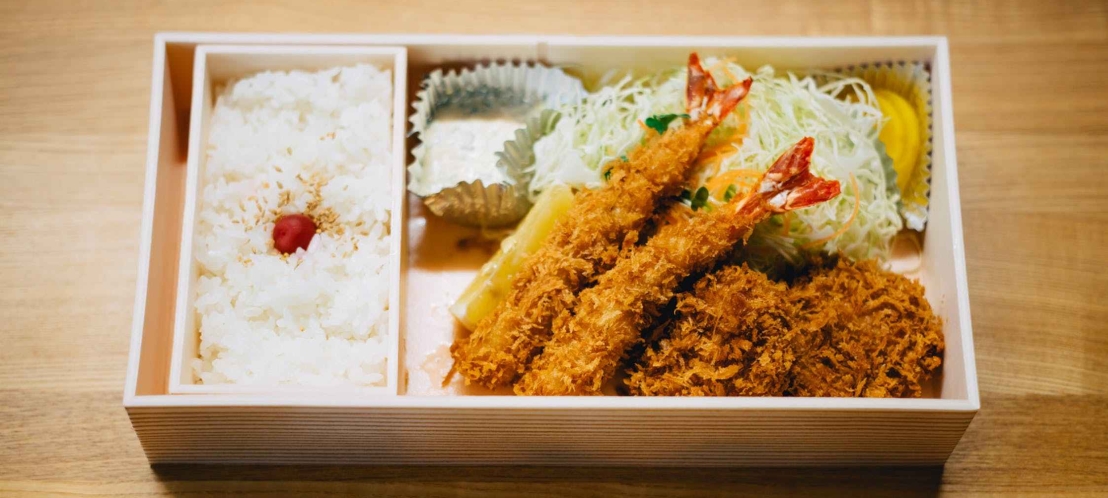


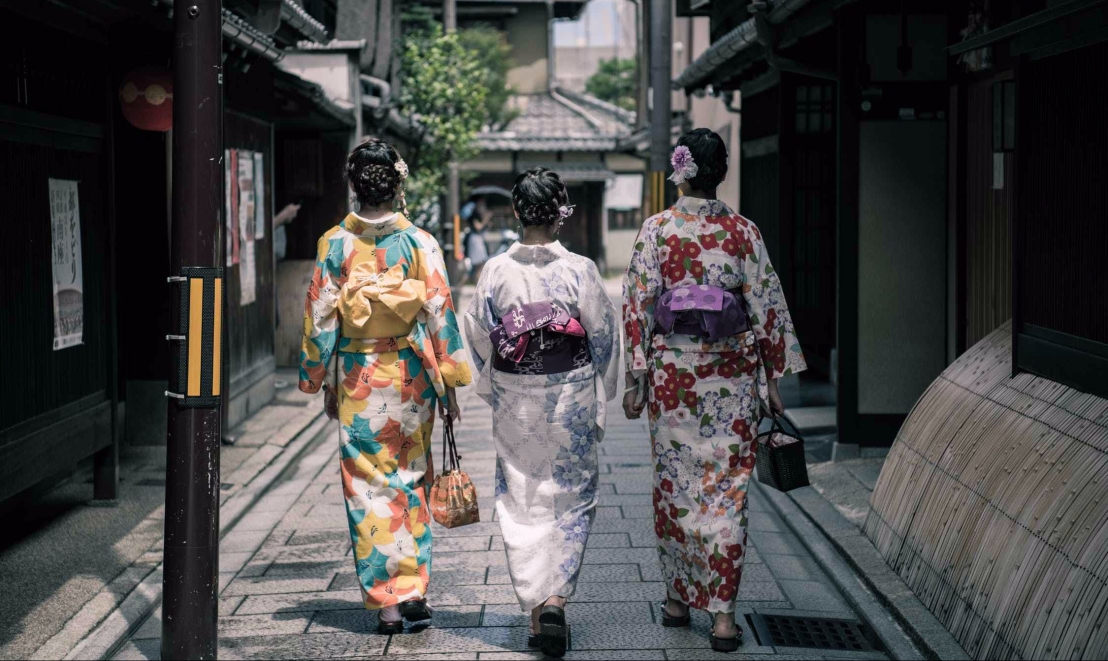







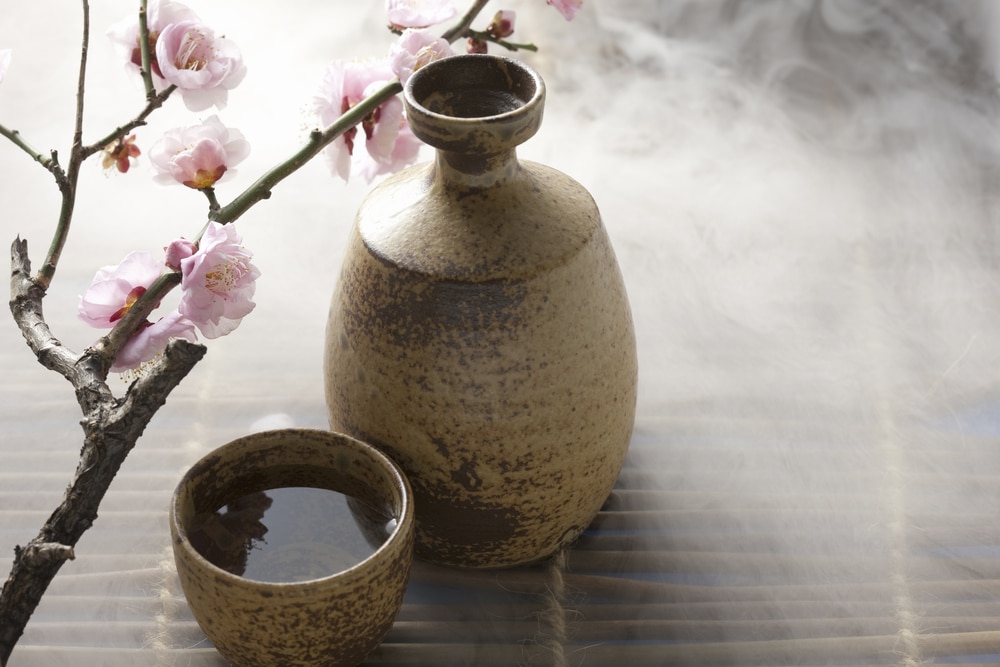
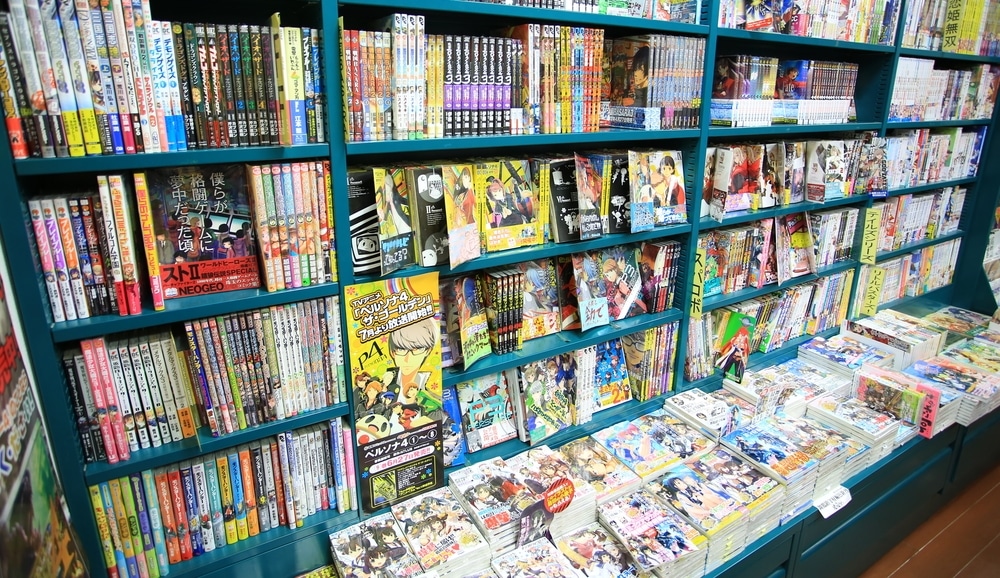
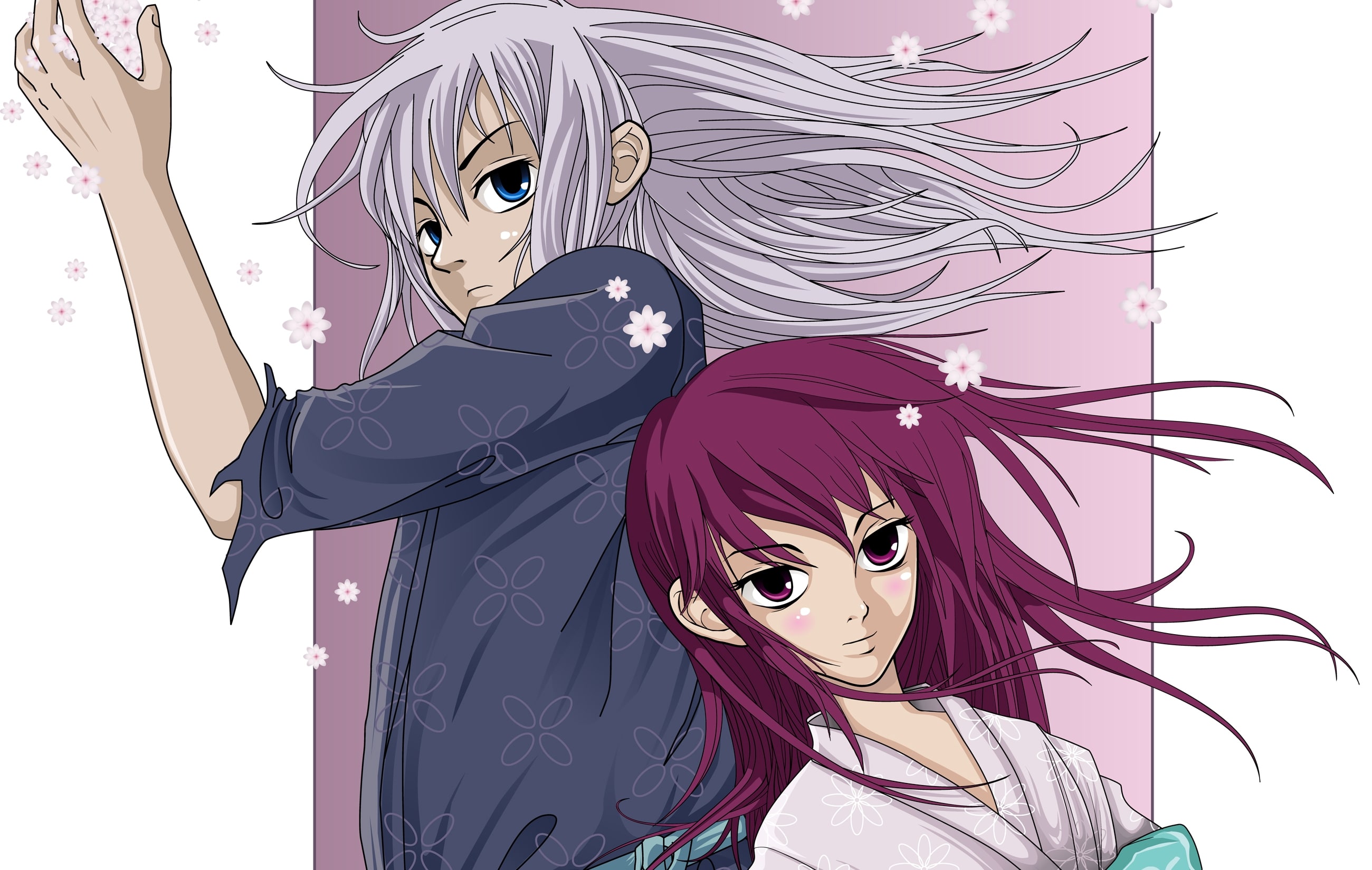




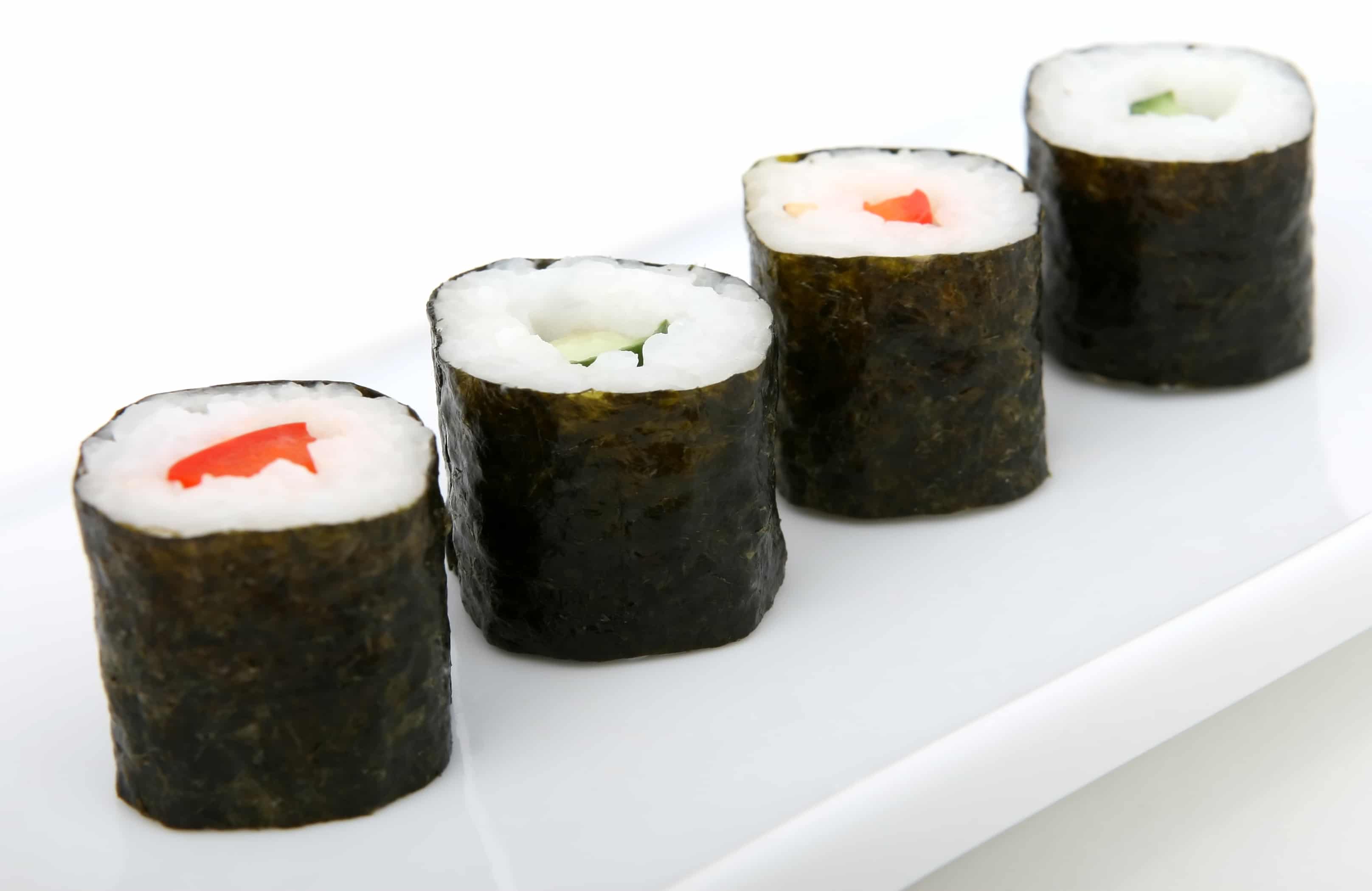
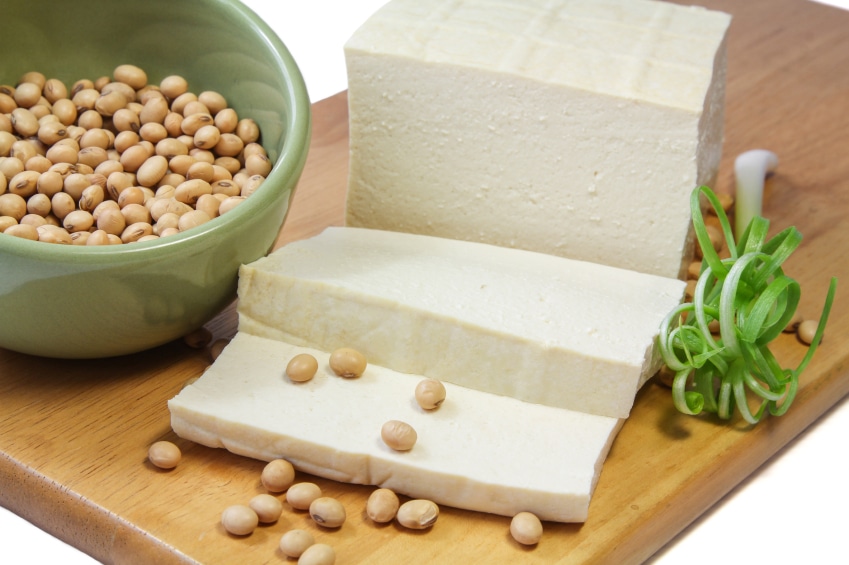

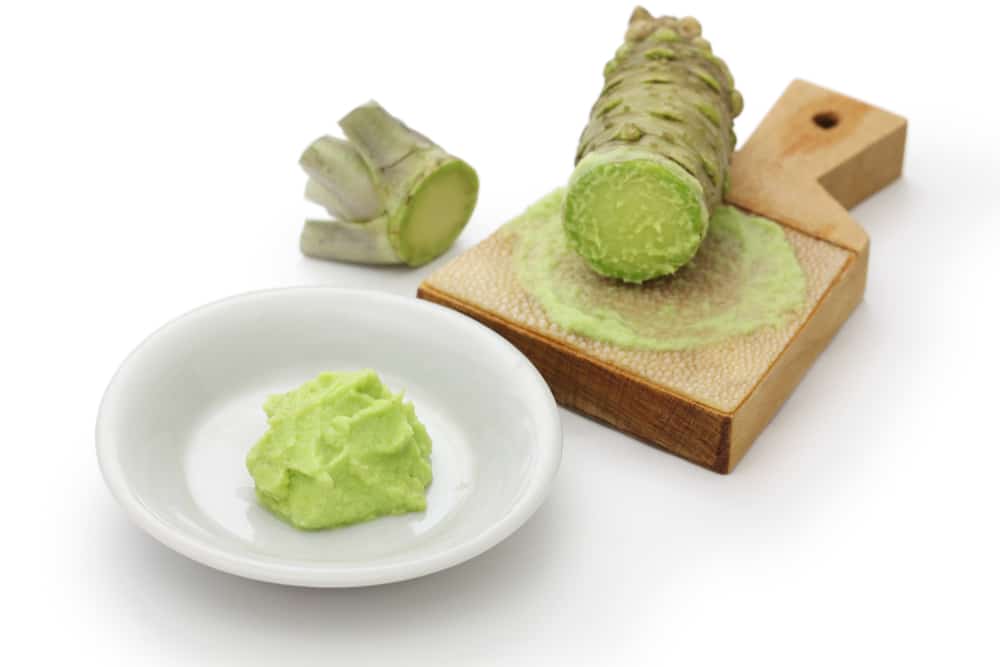
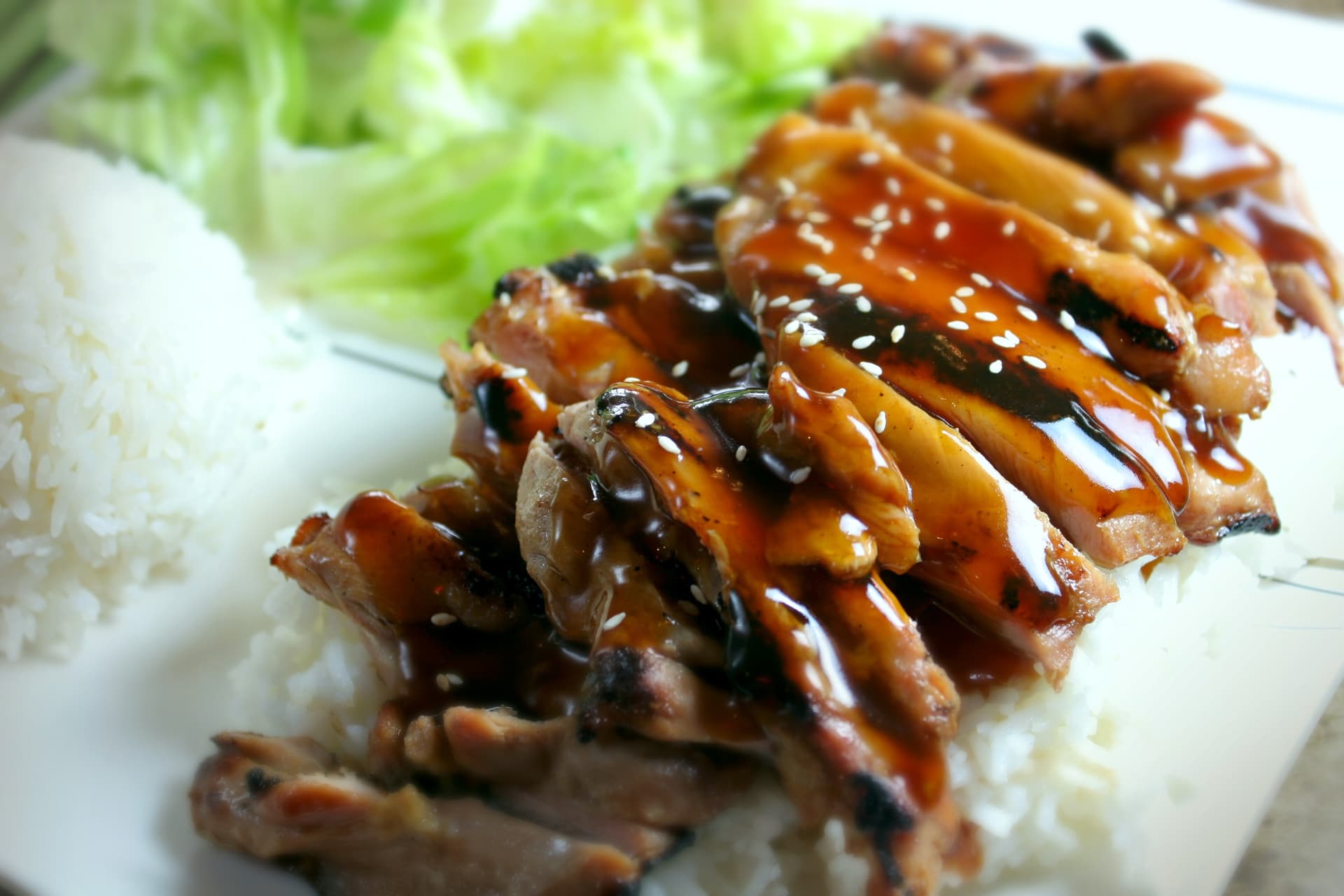



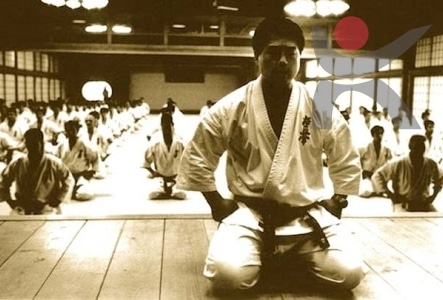

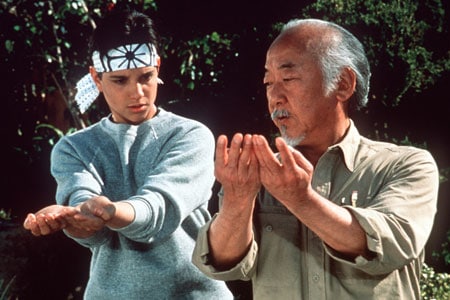

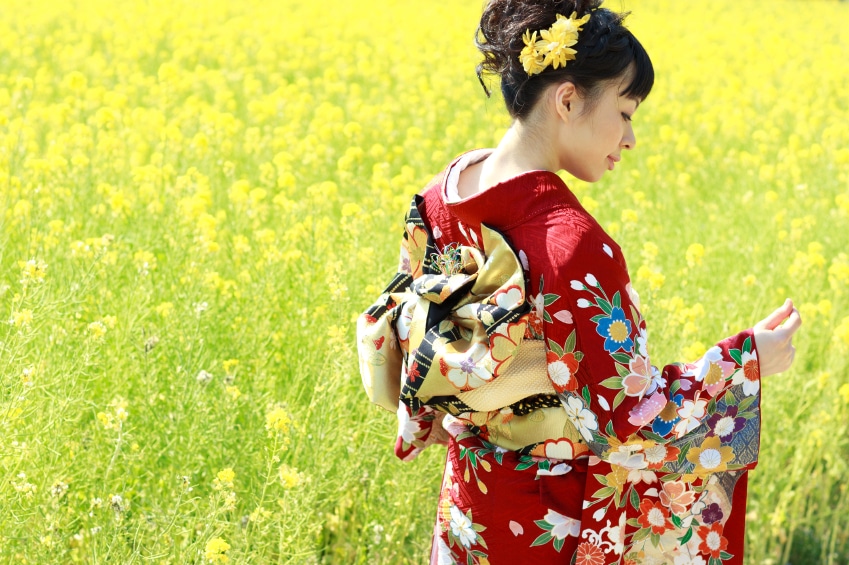
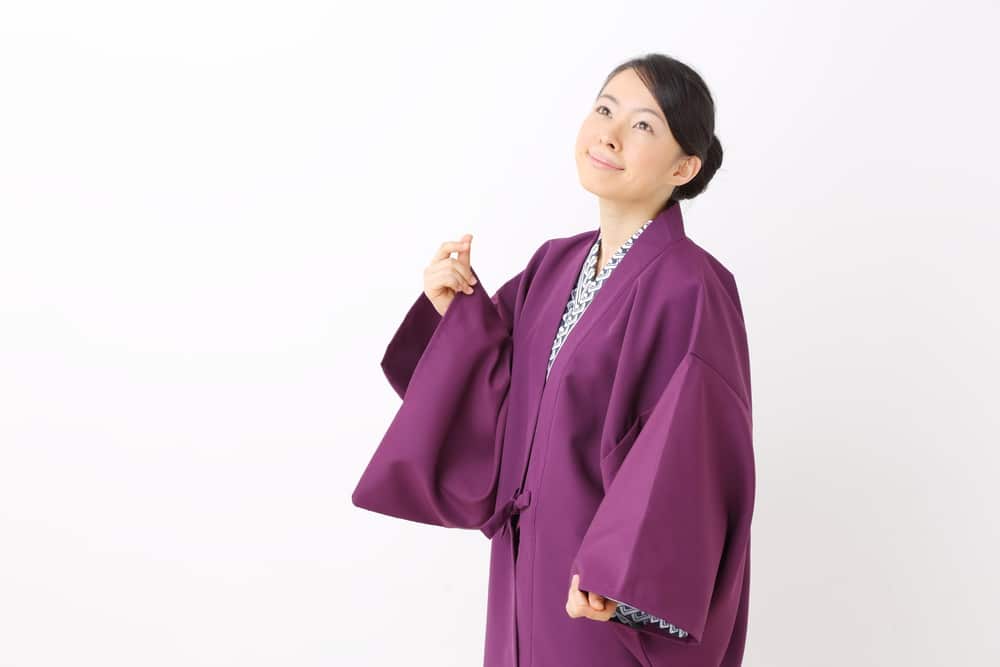

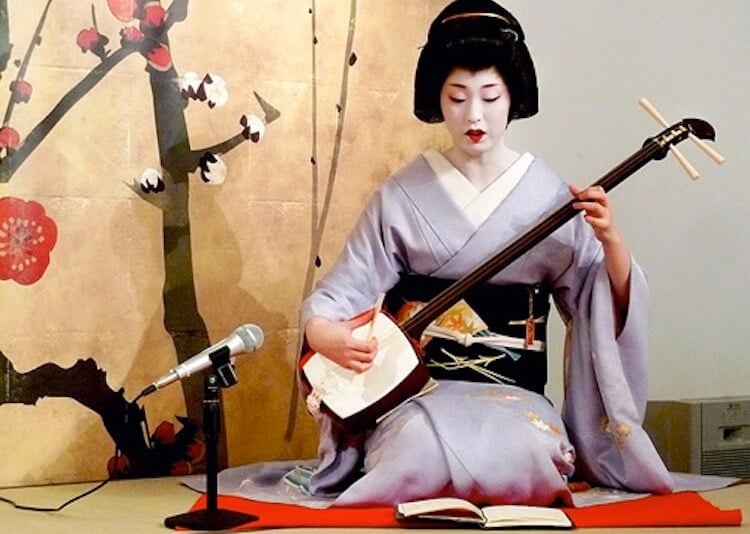

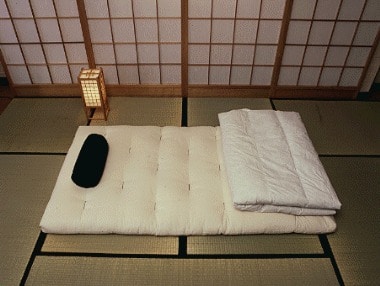

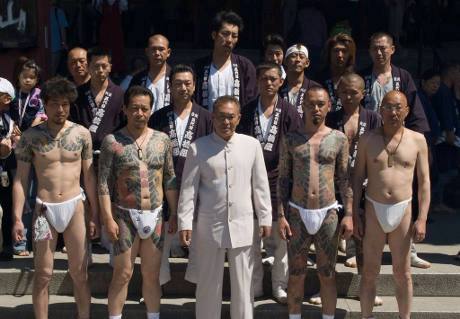




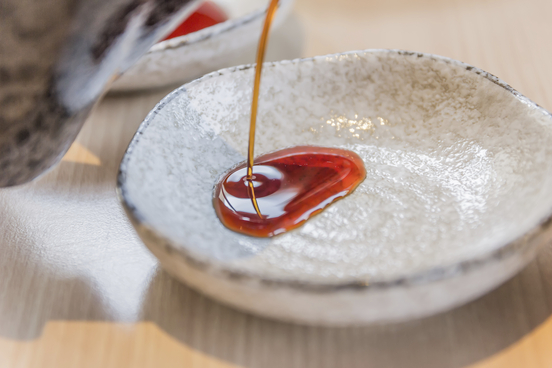
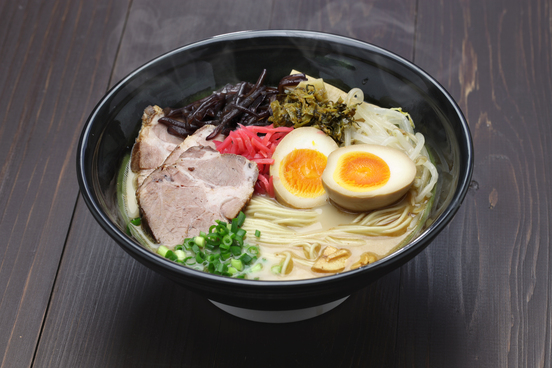

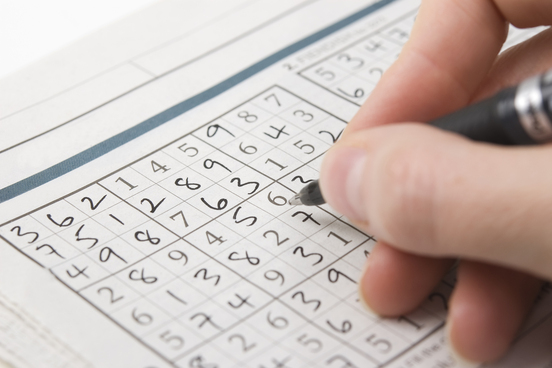
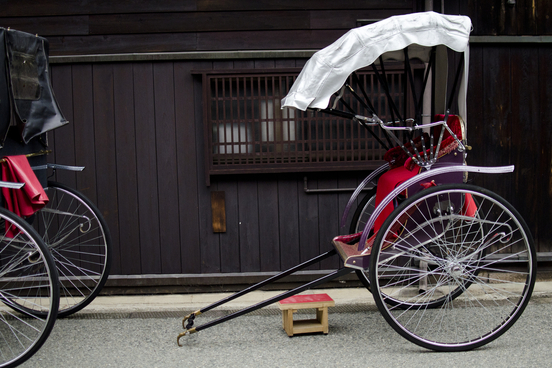


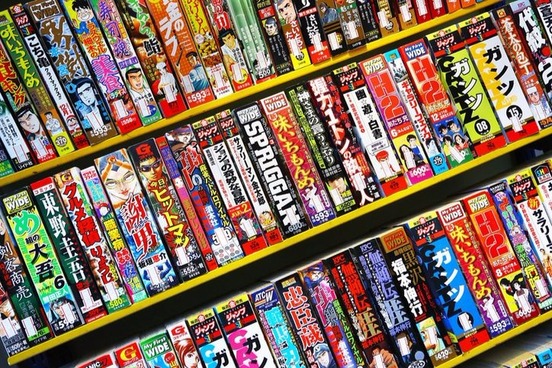


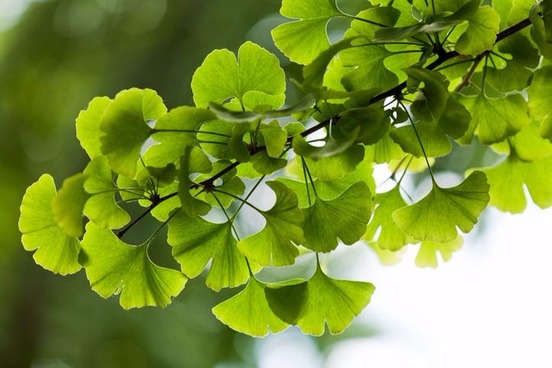


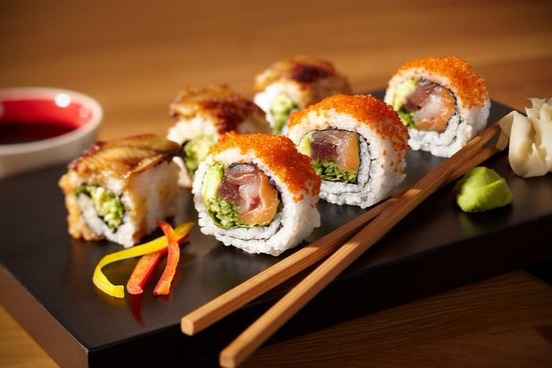





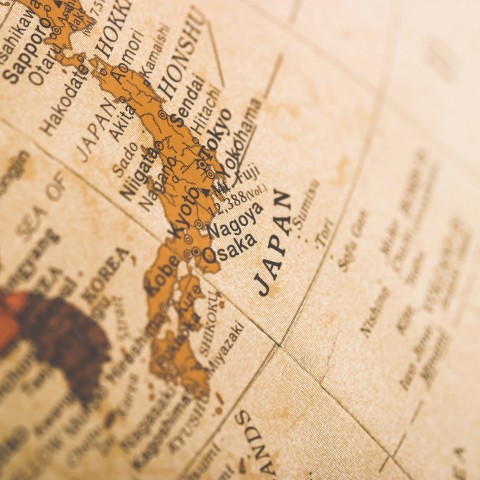








 Rickshaw
Rickshaw